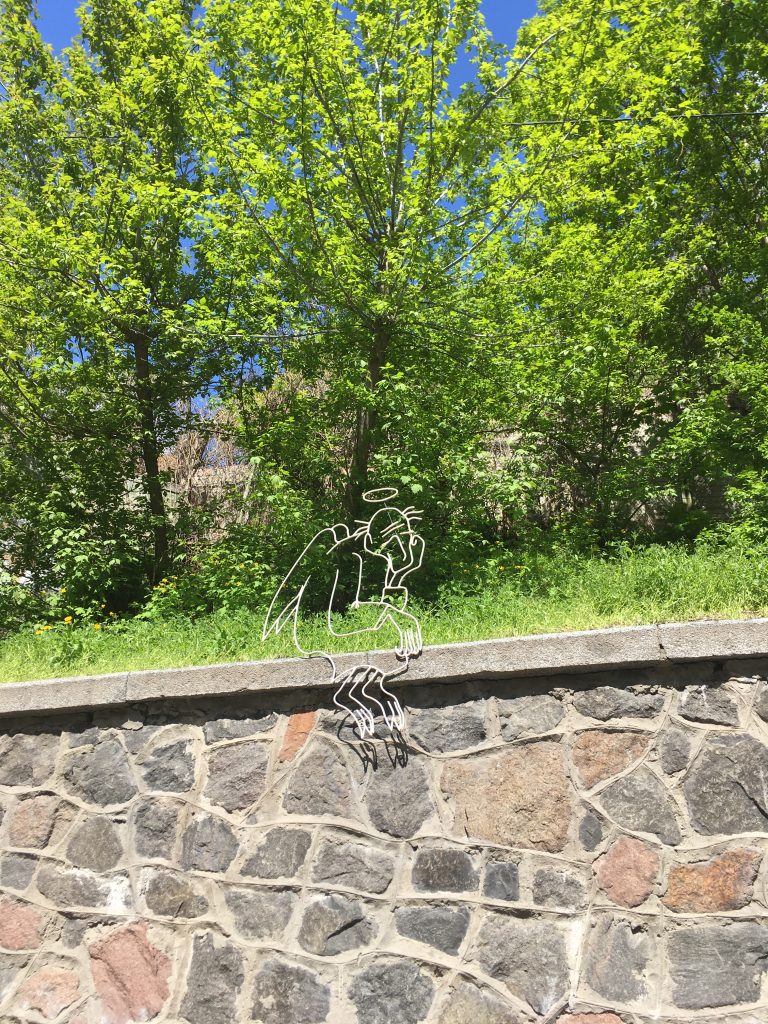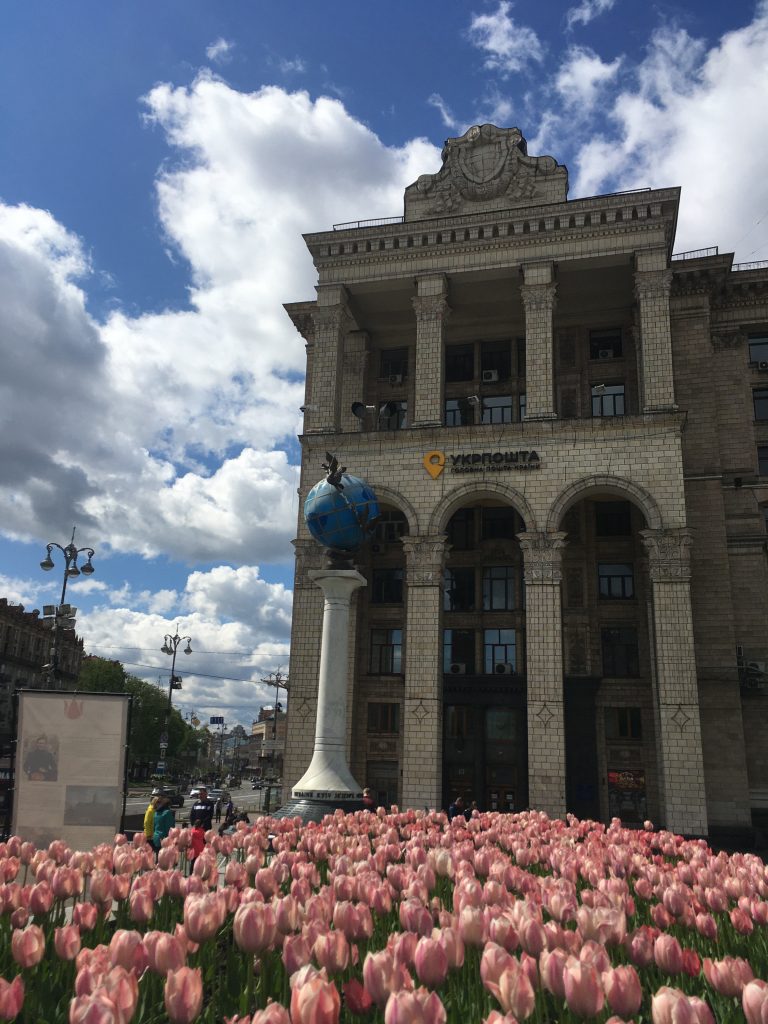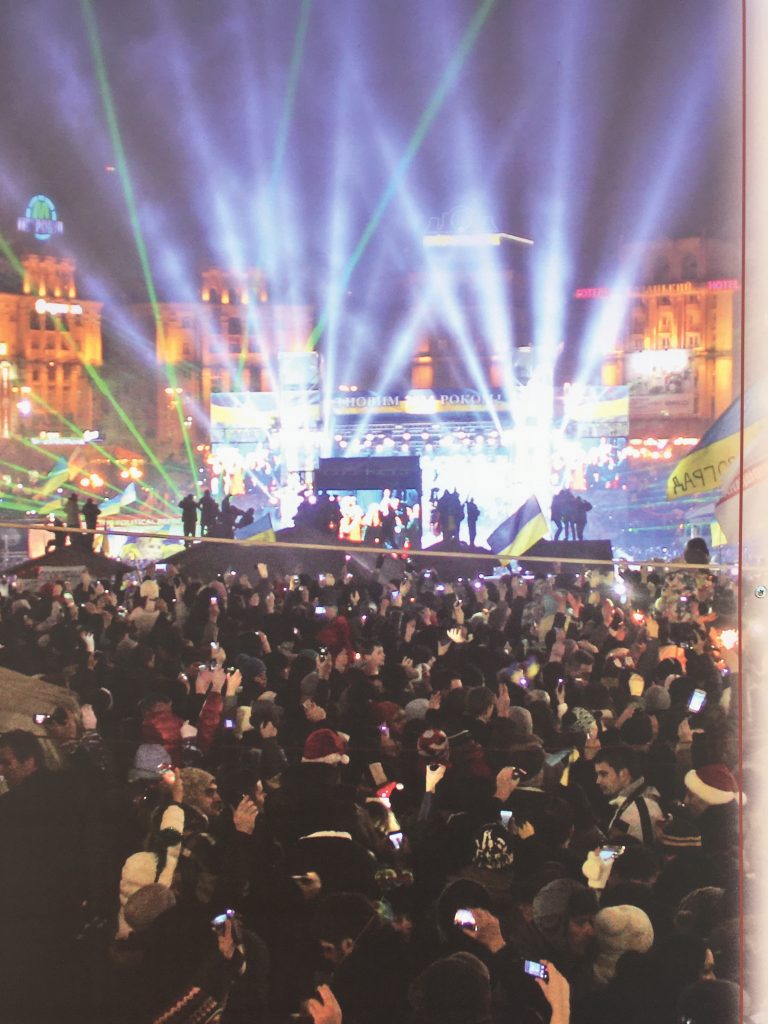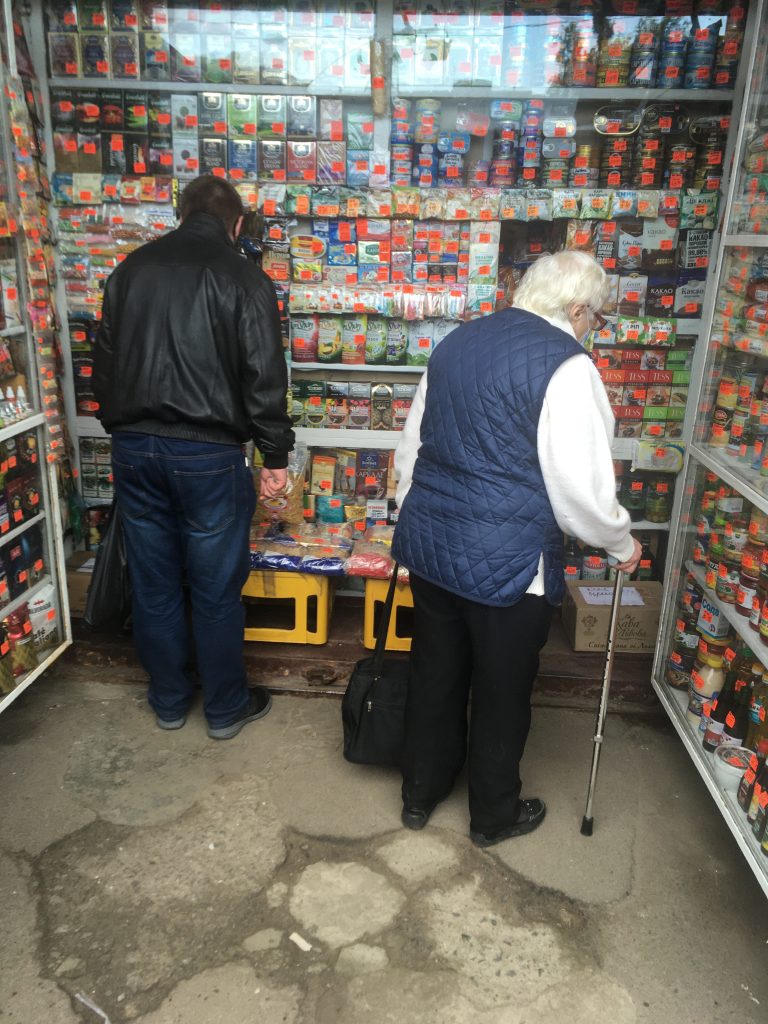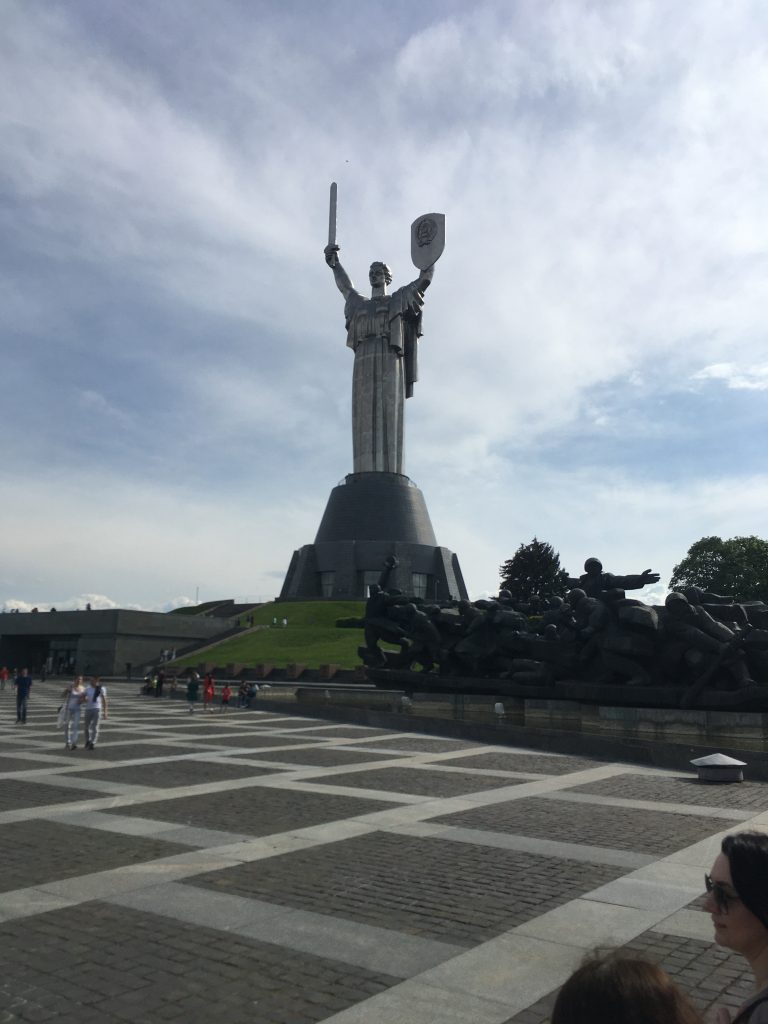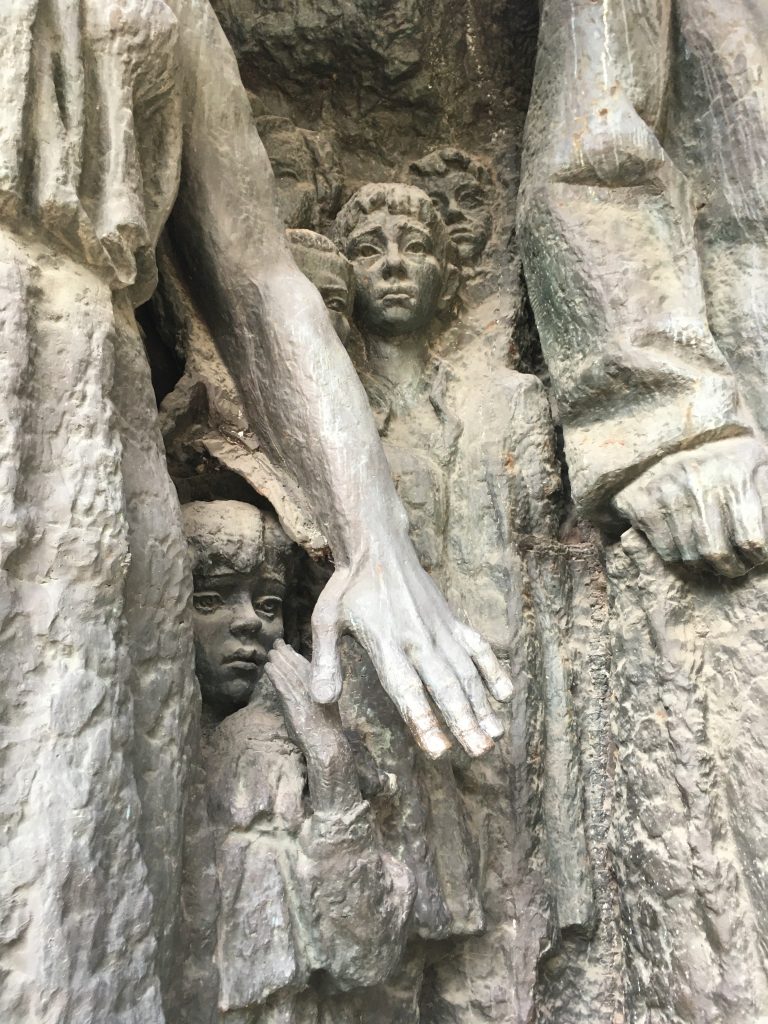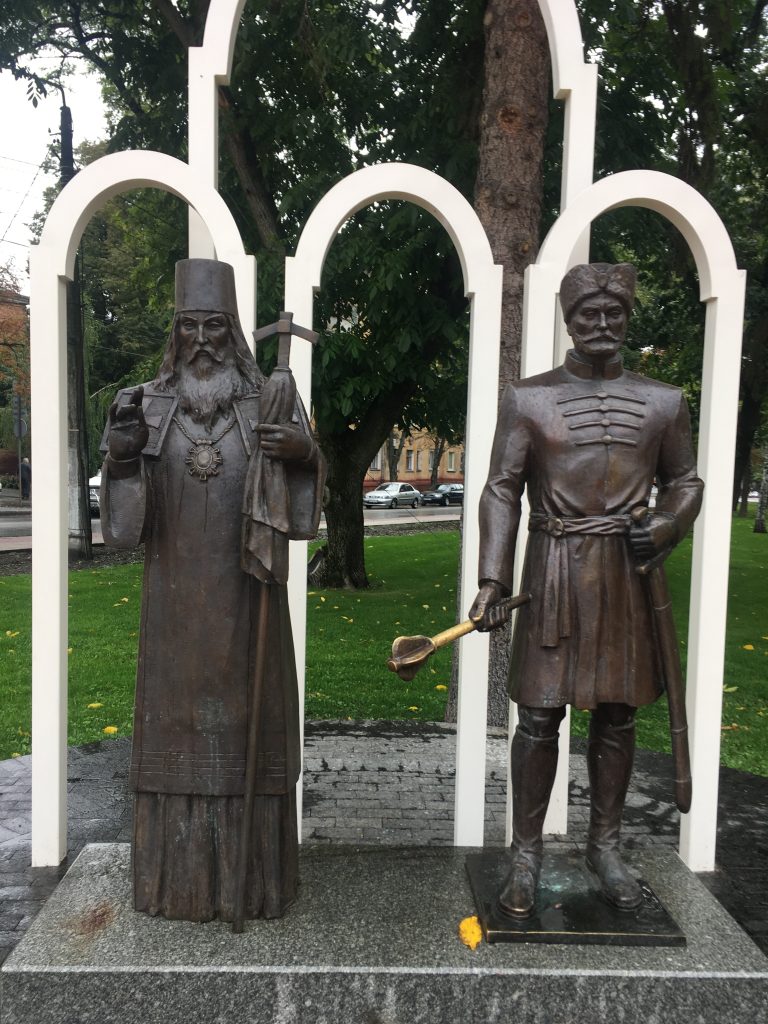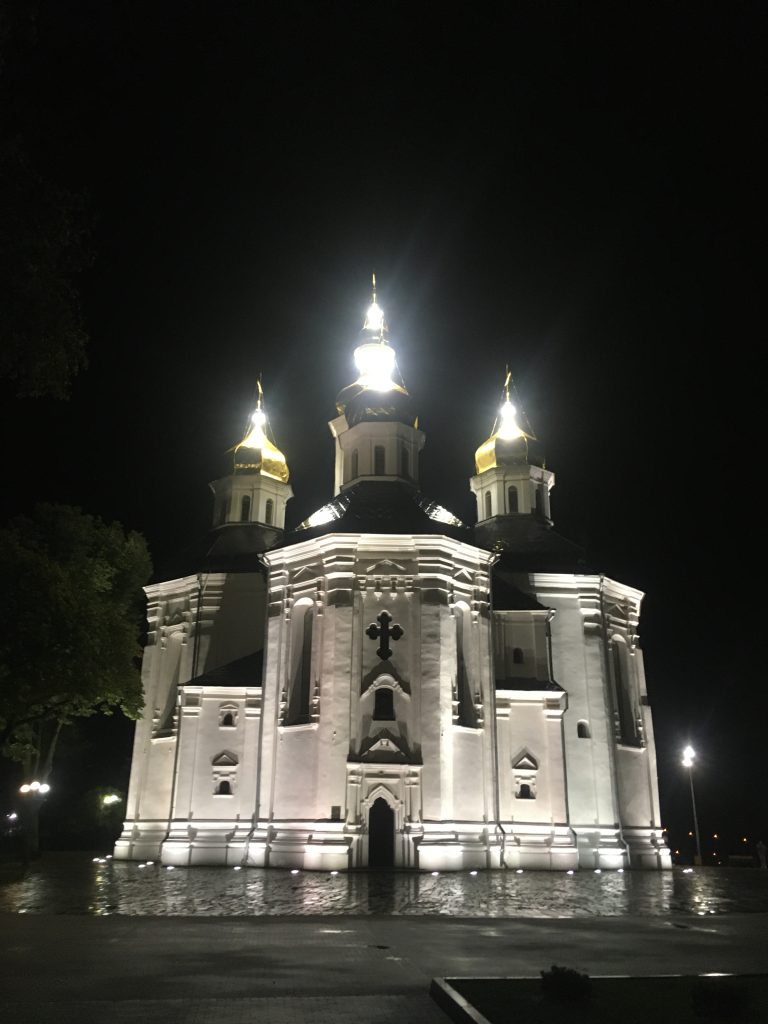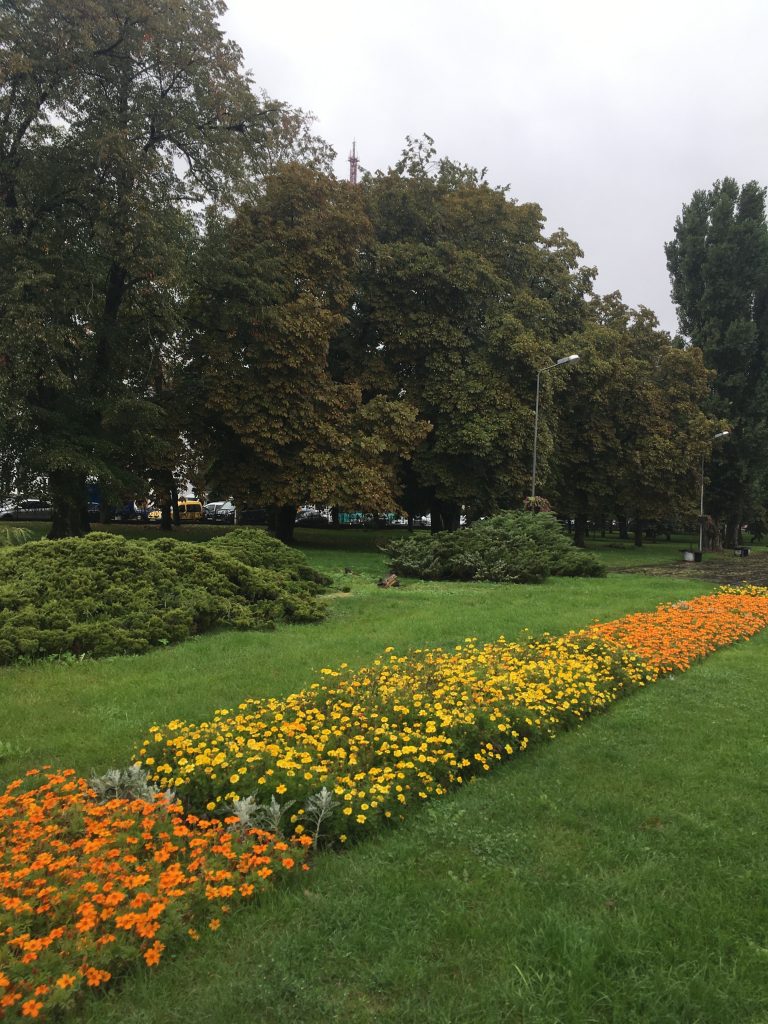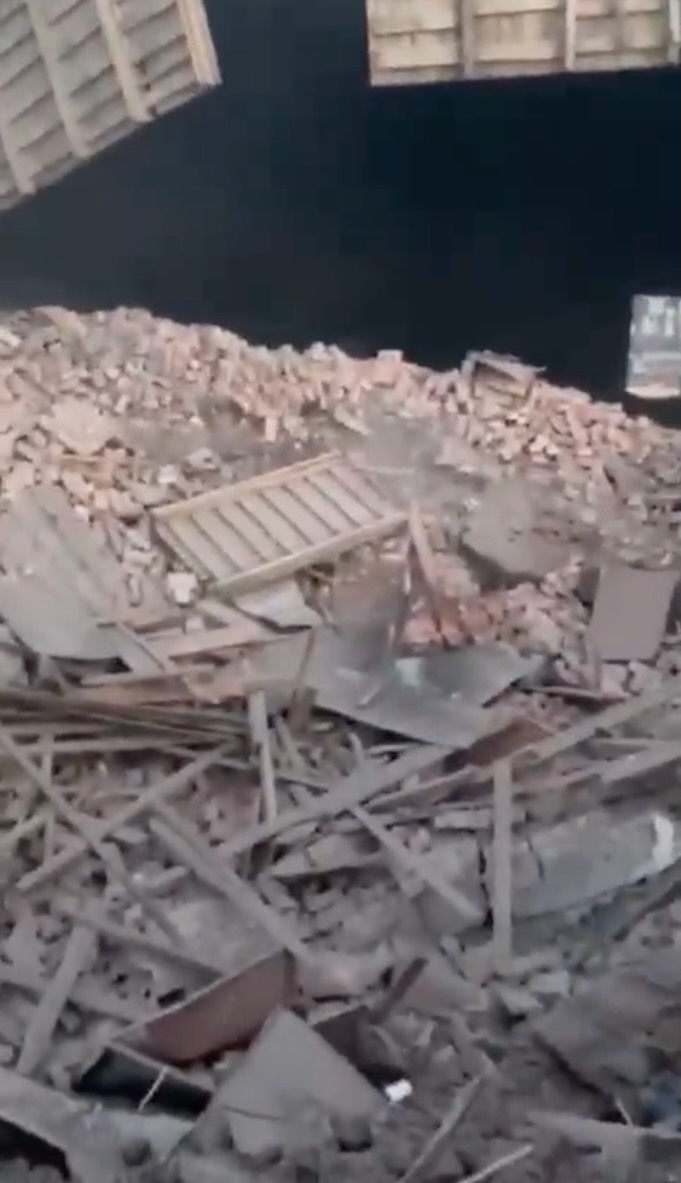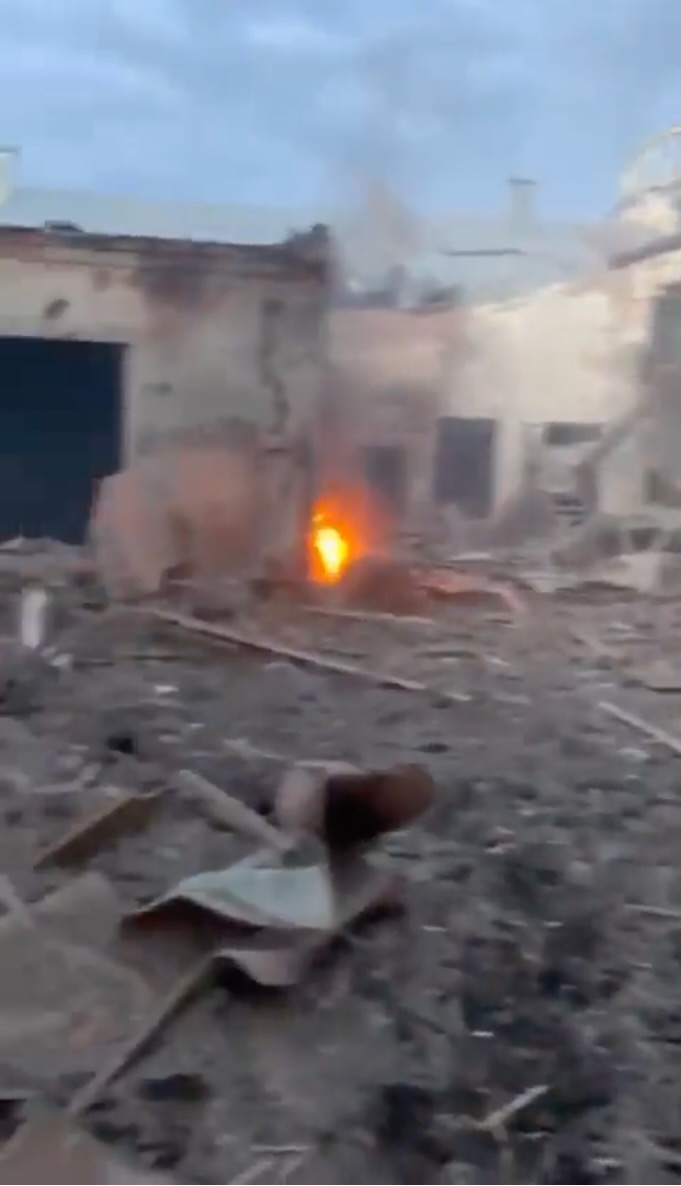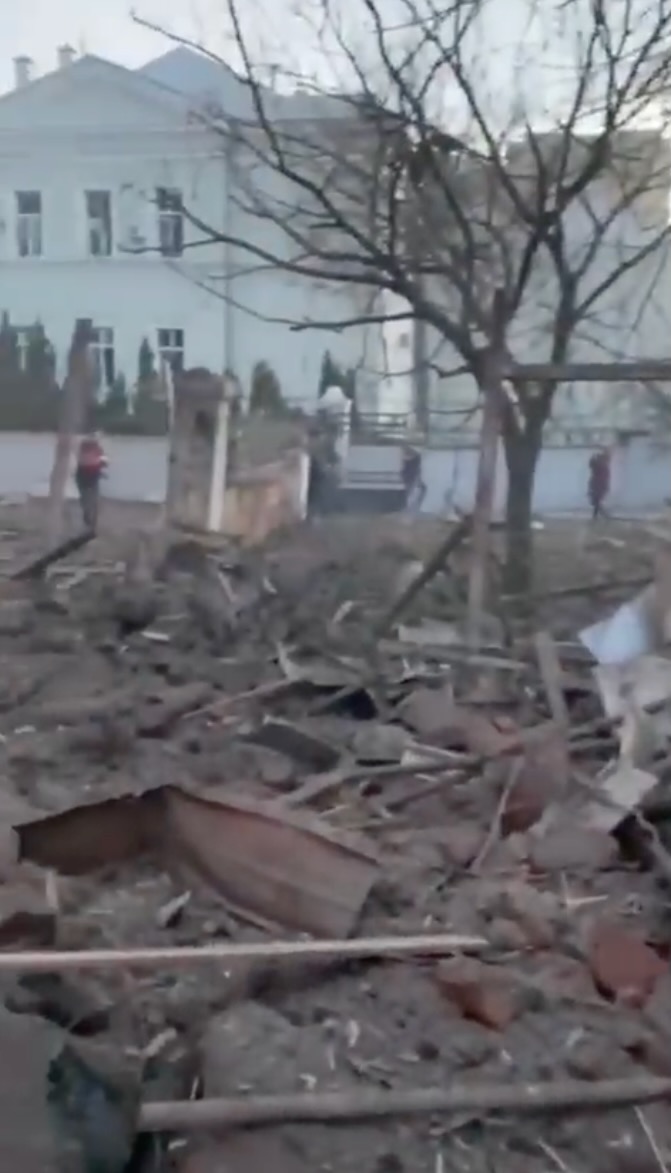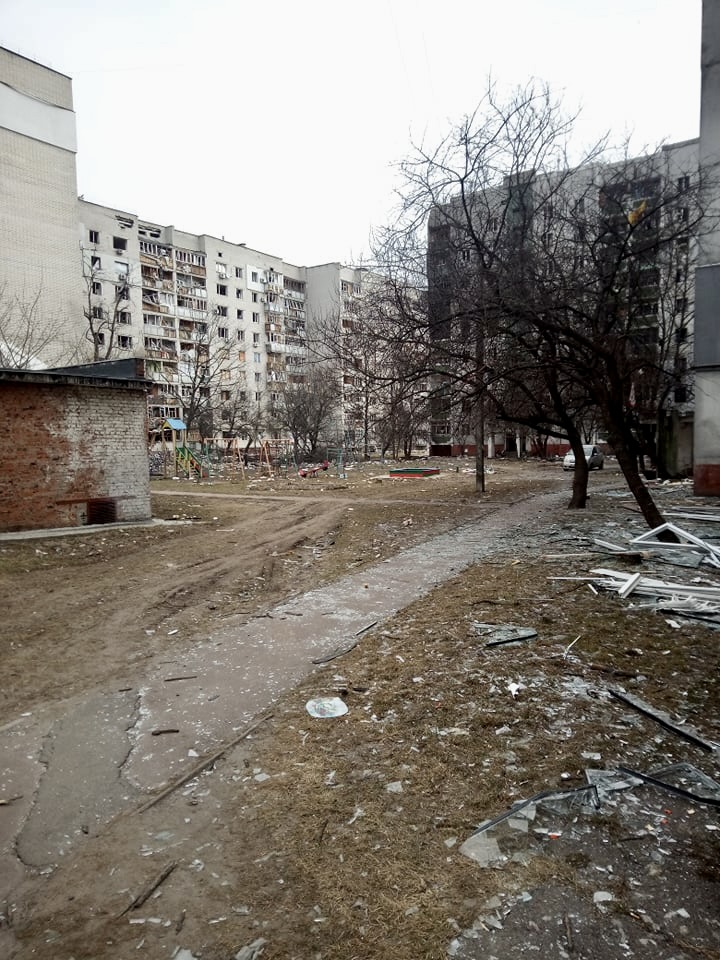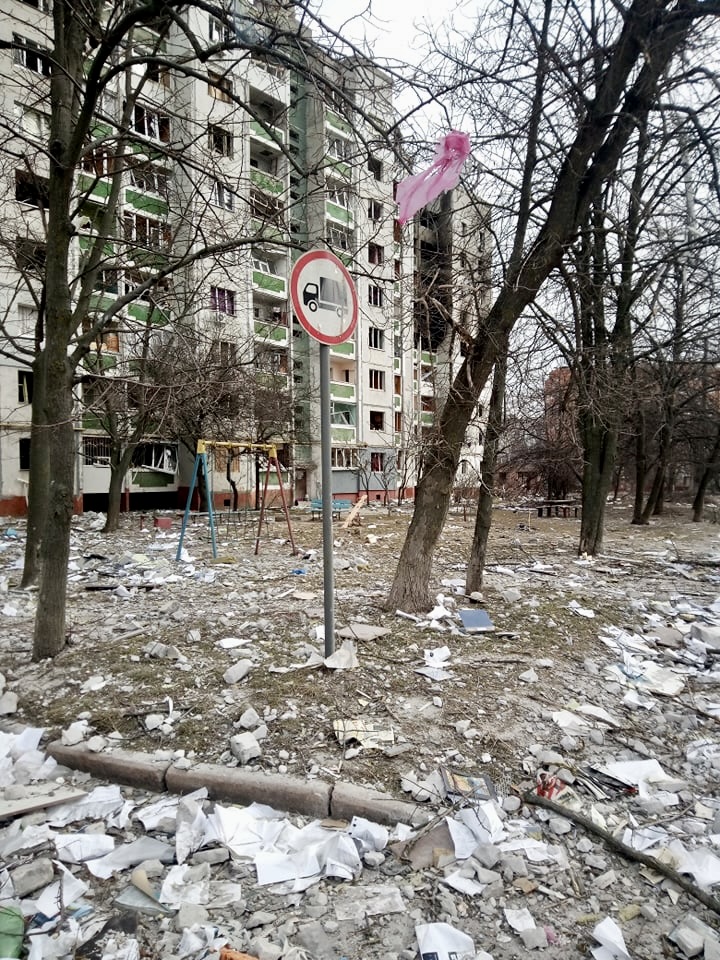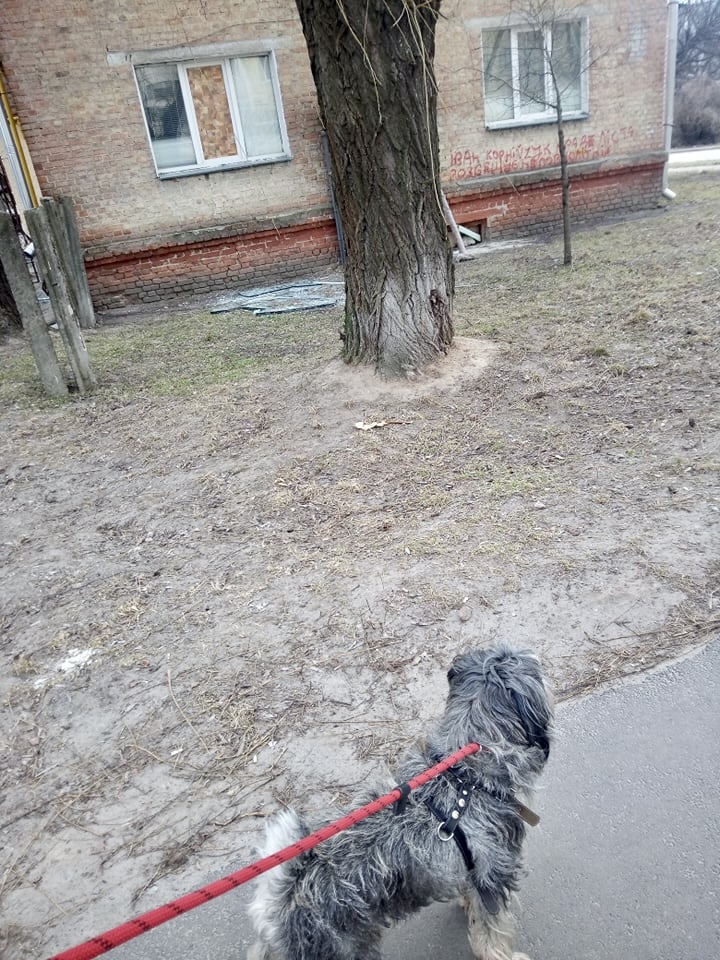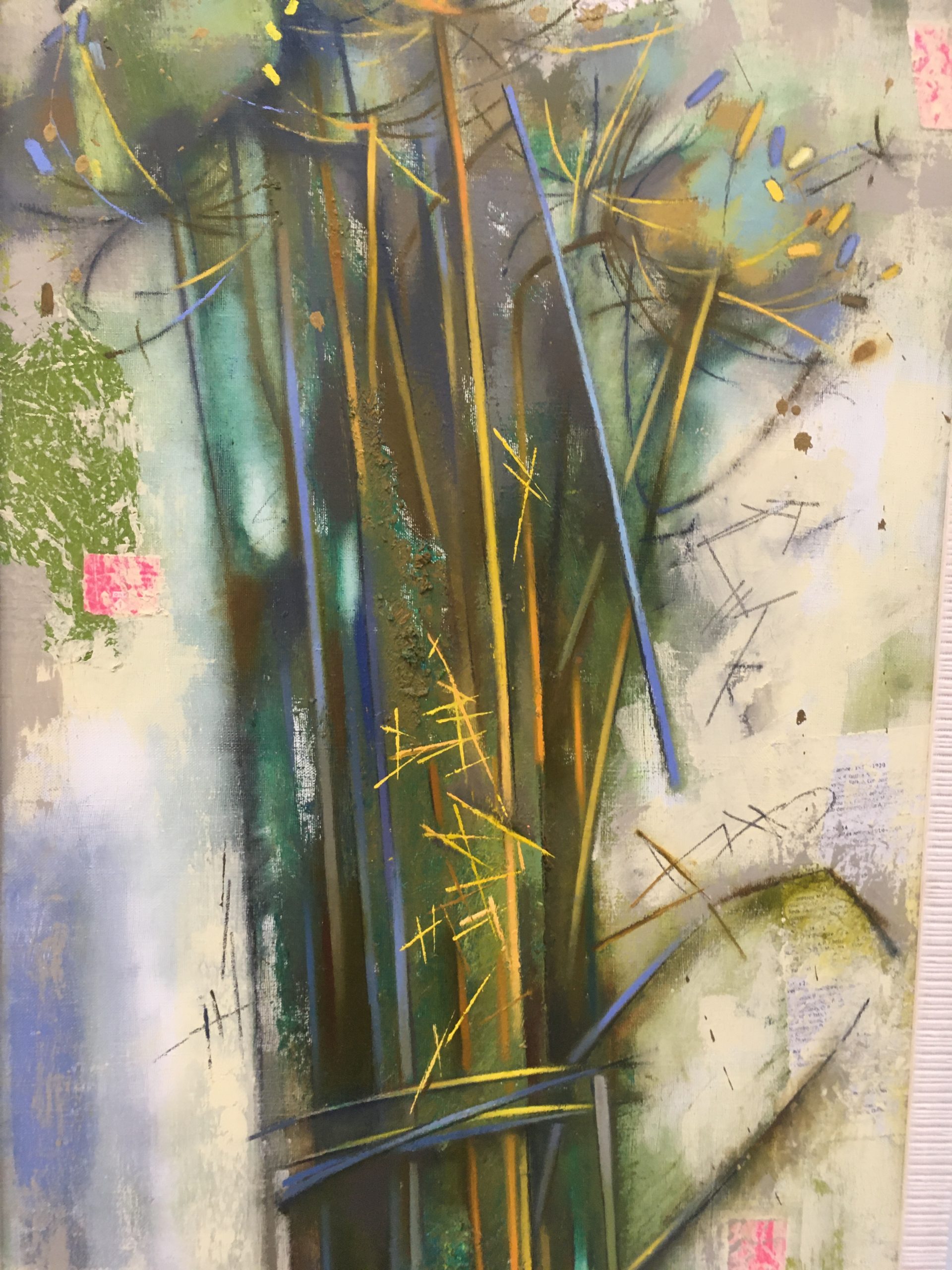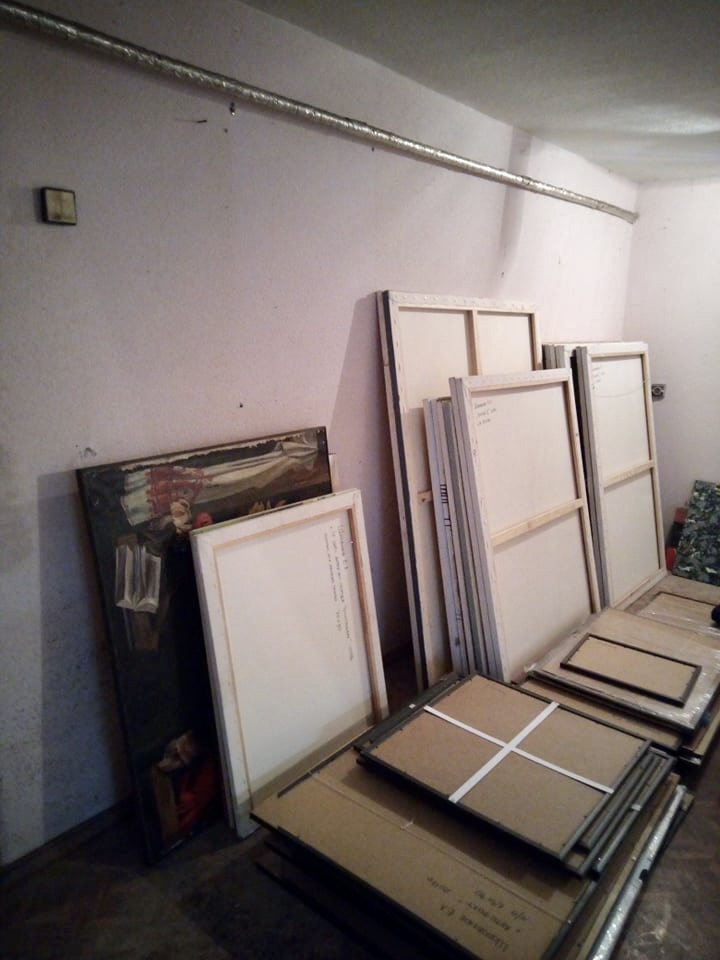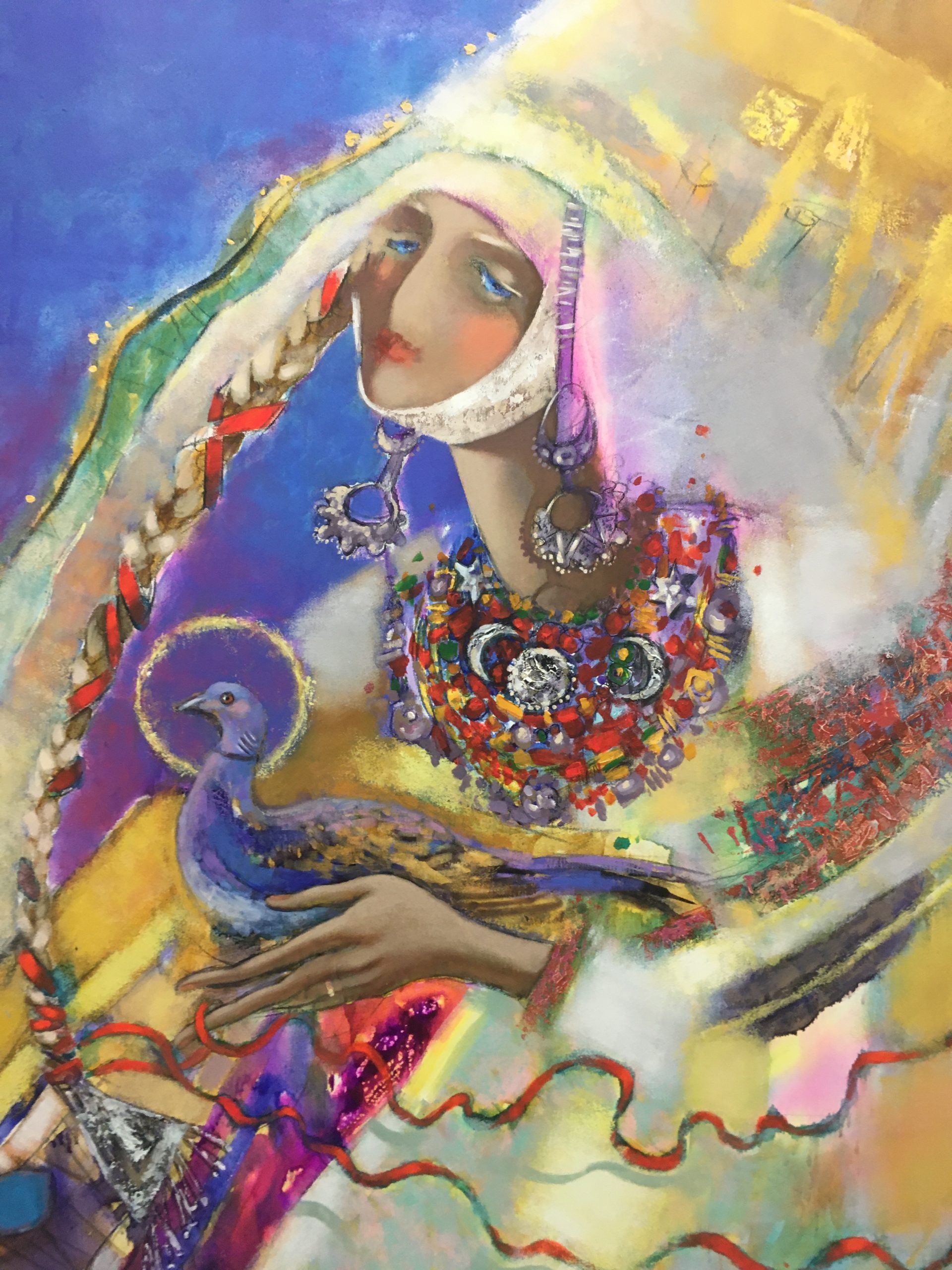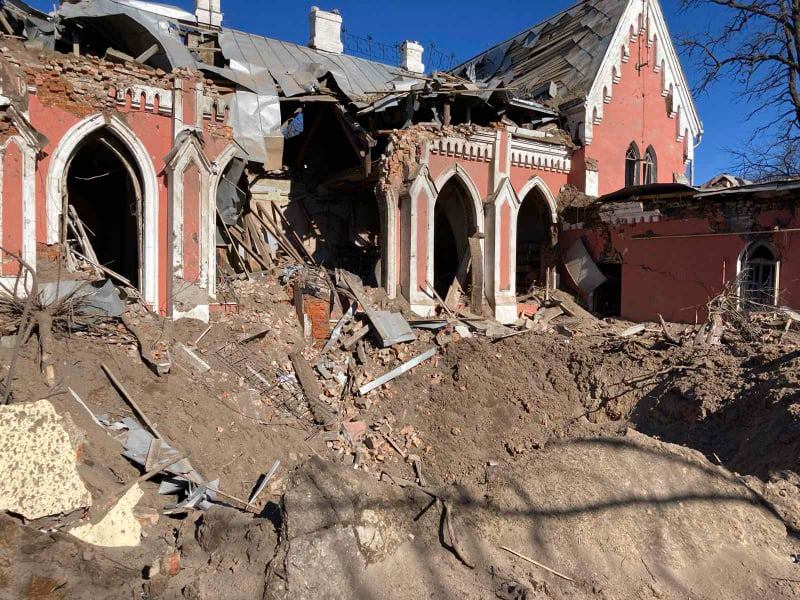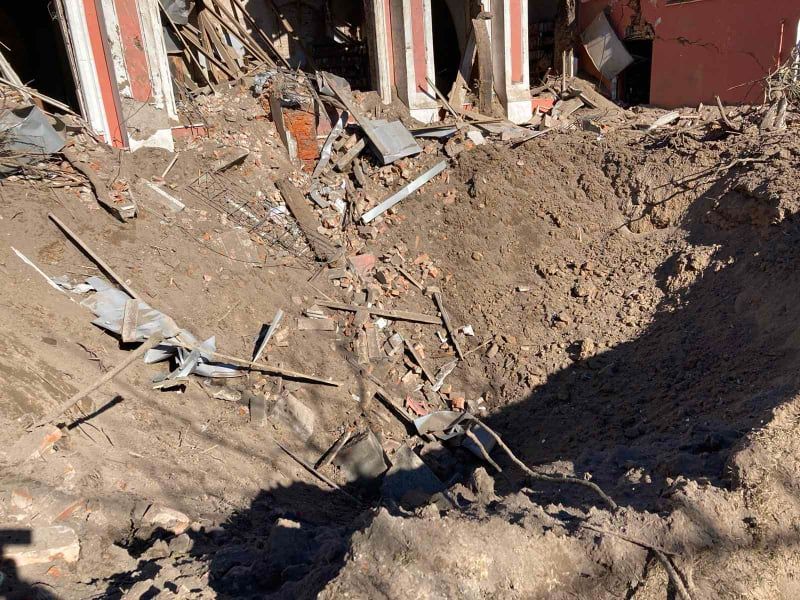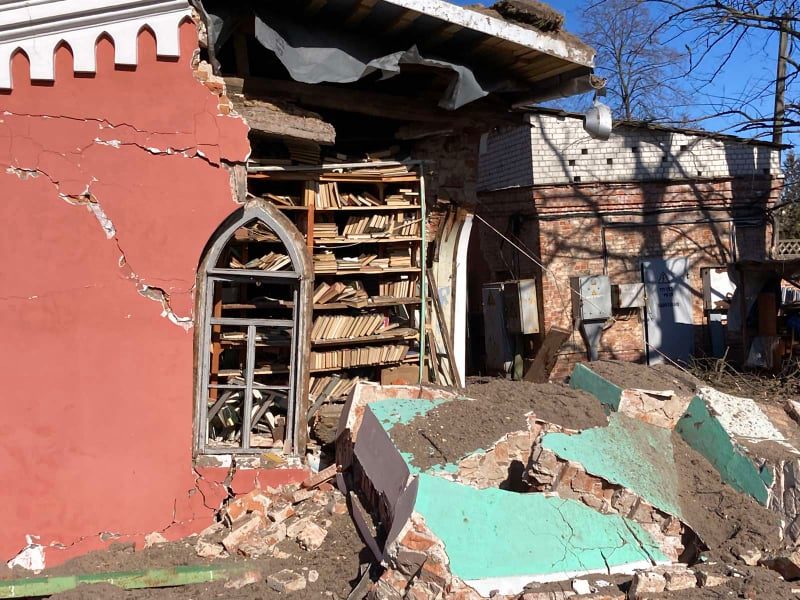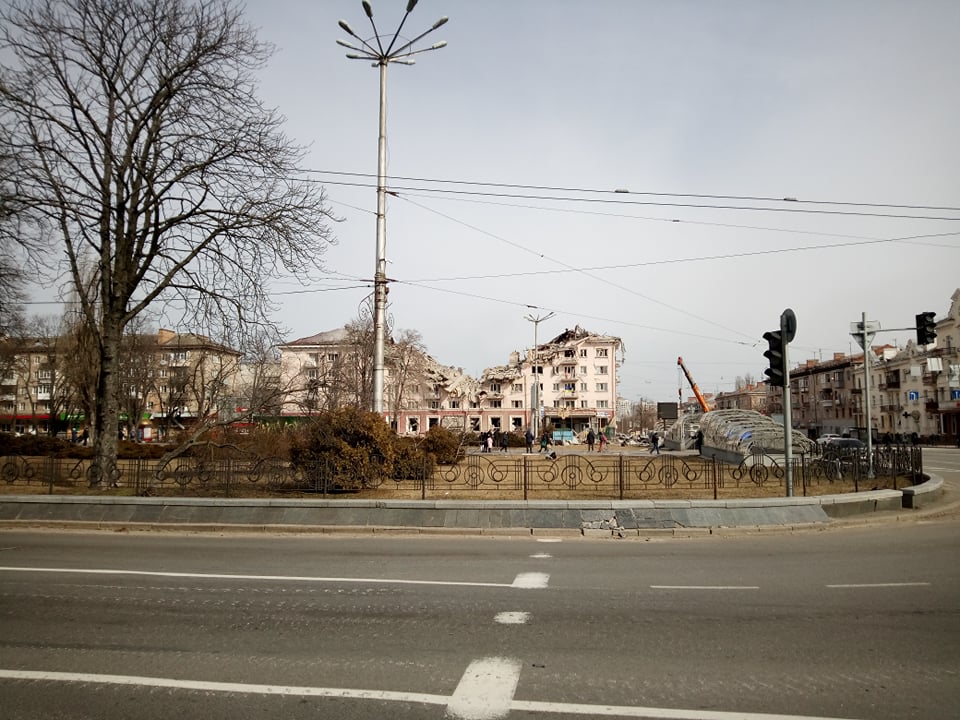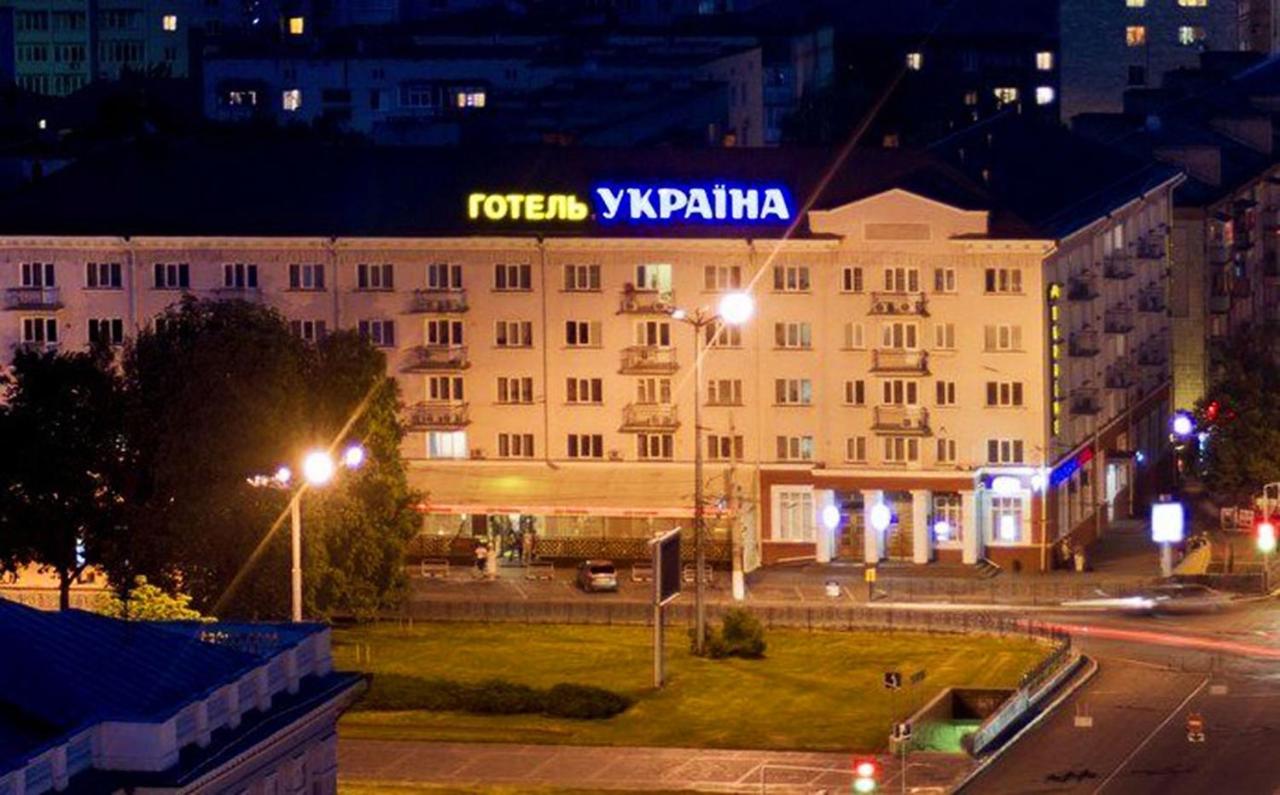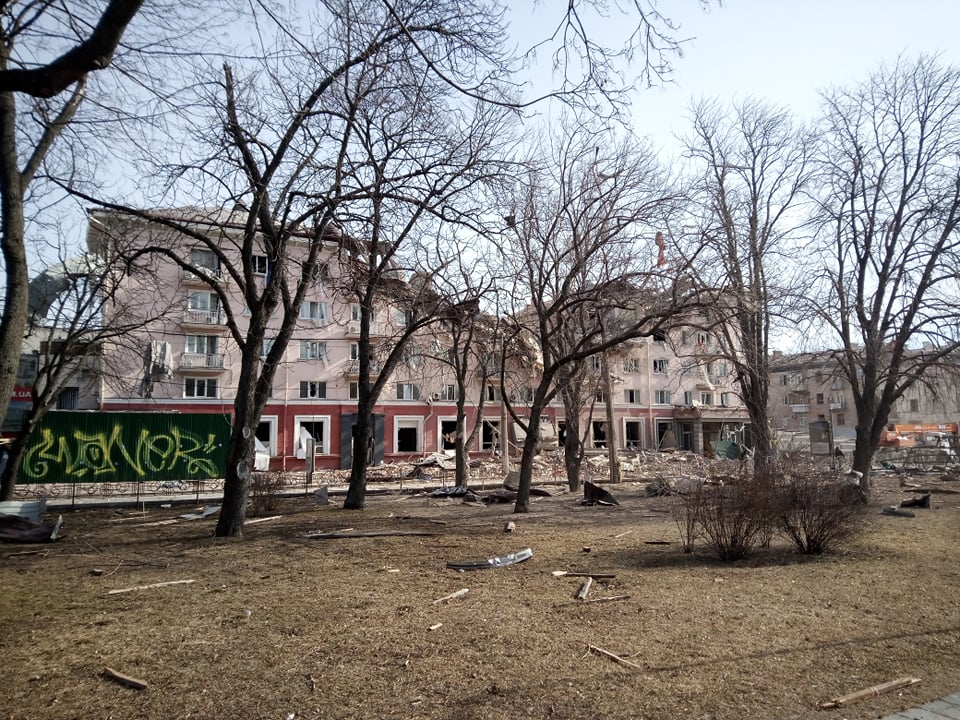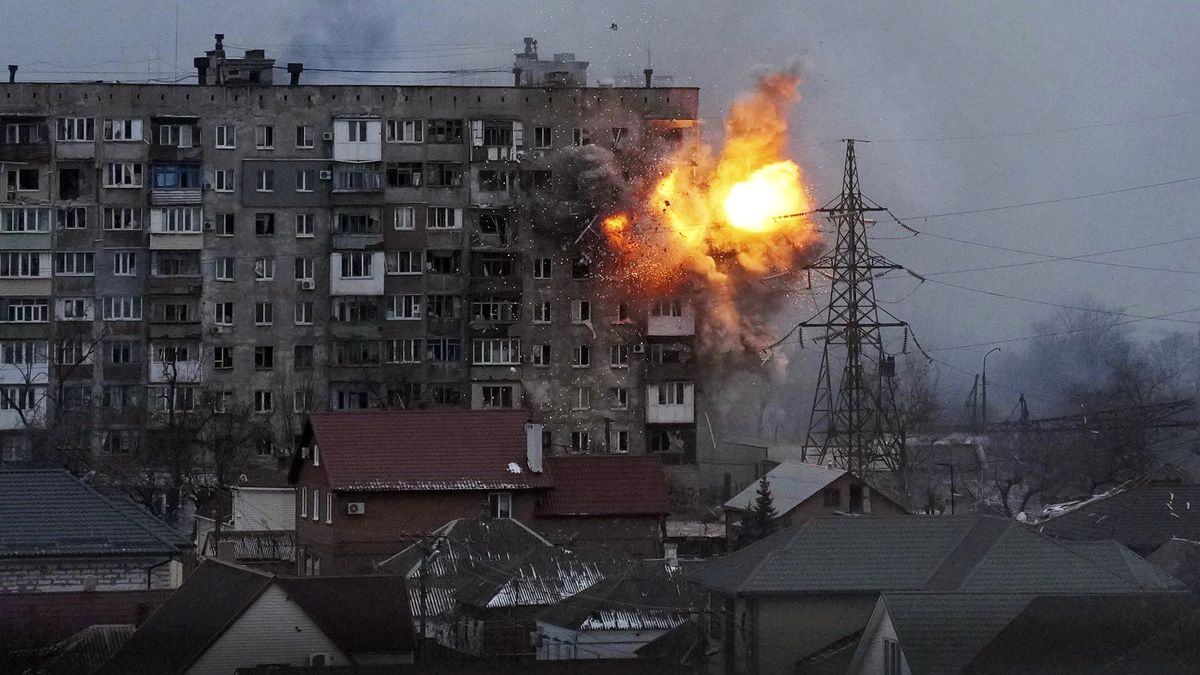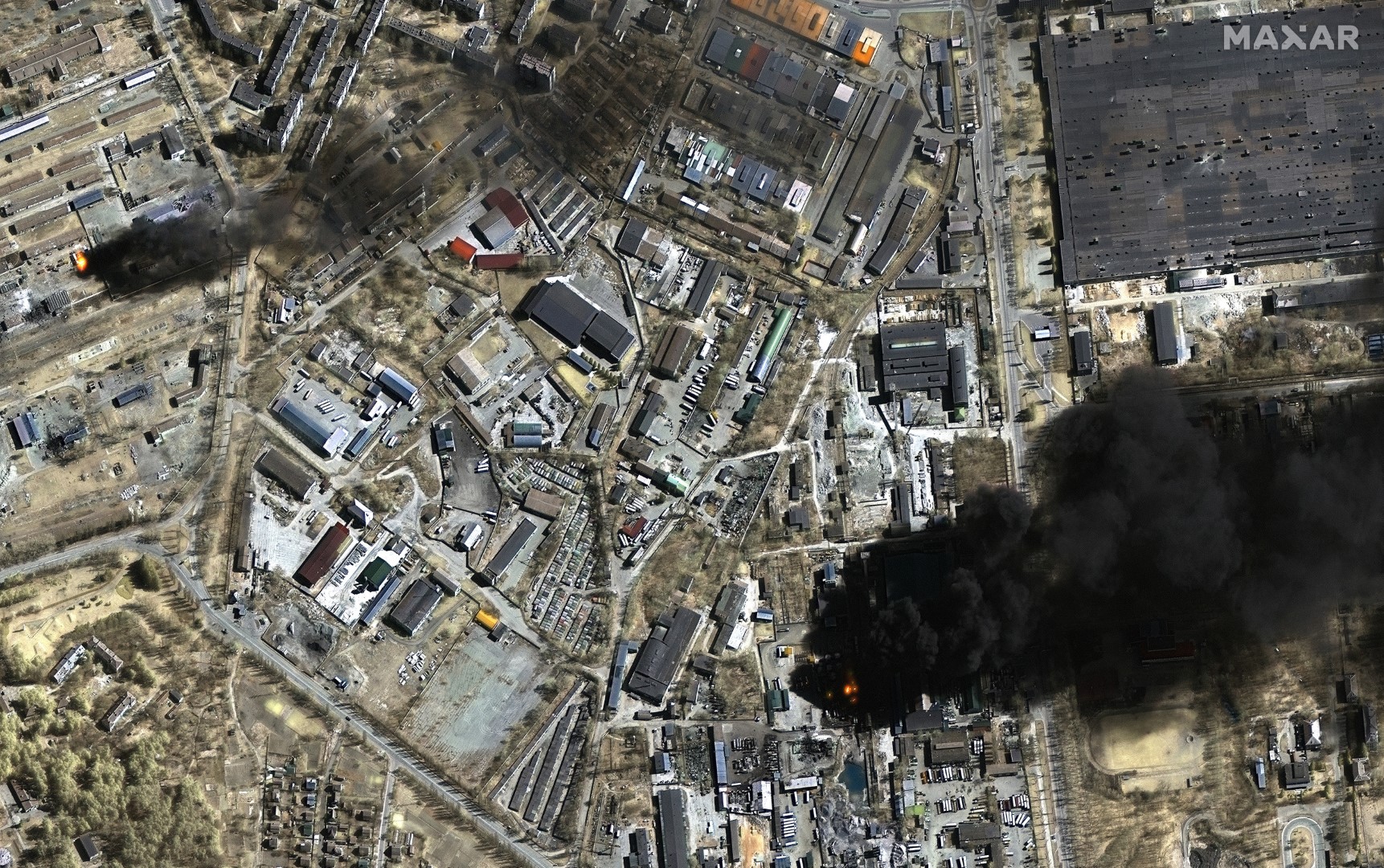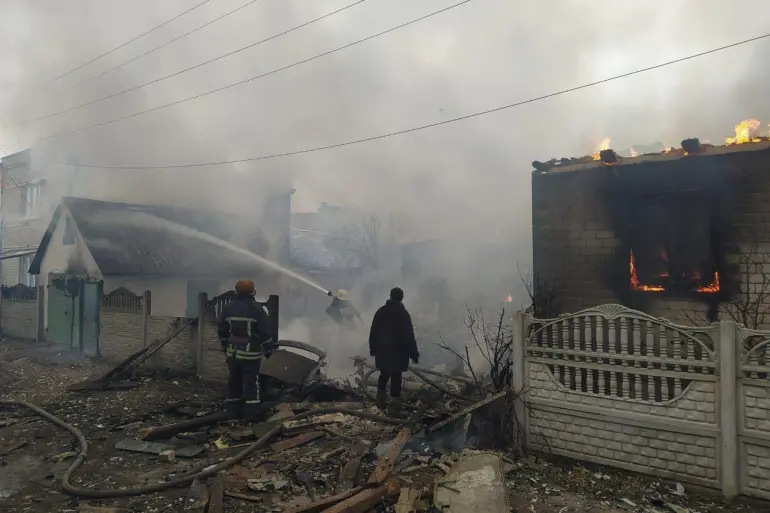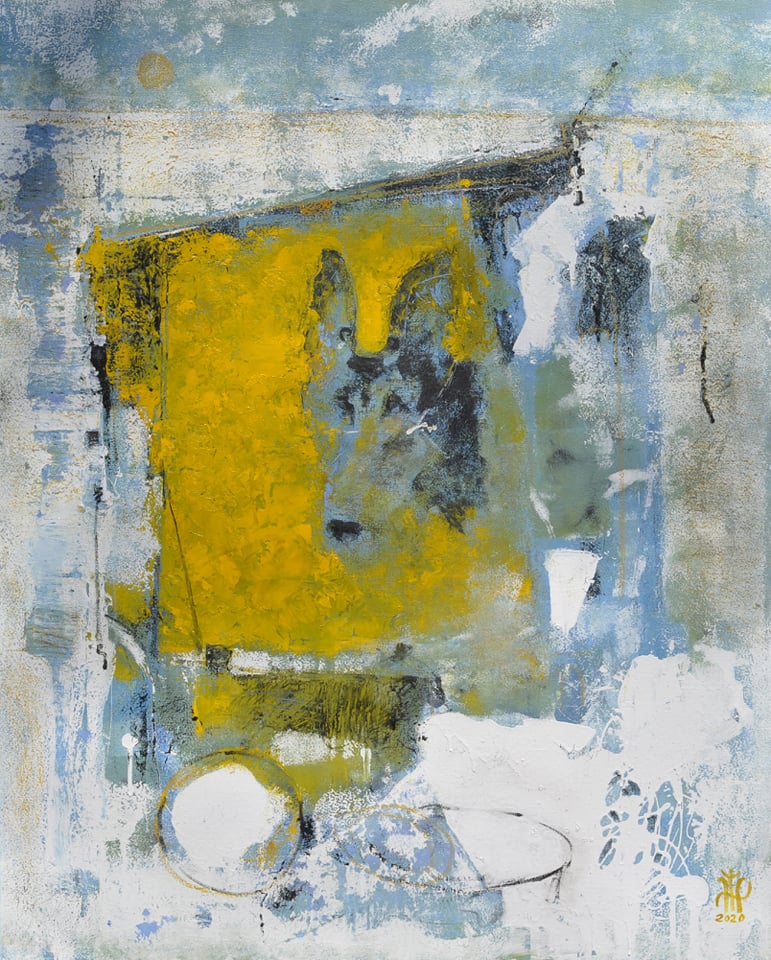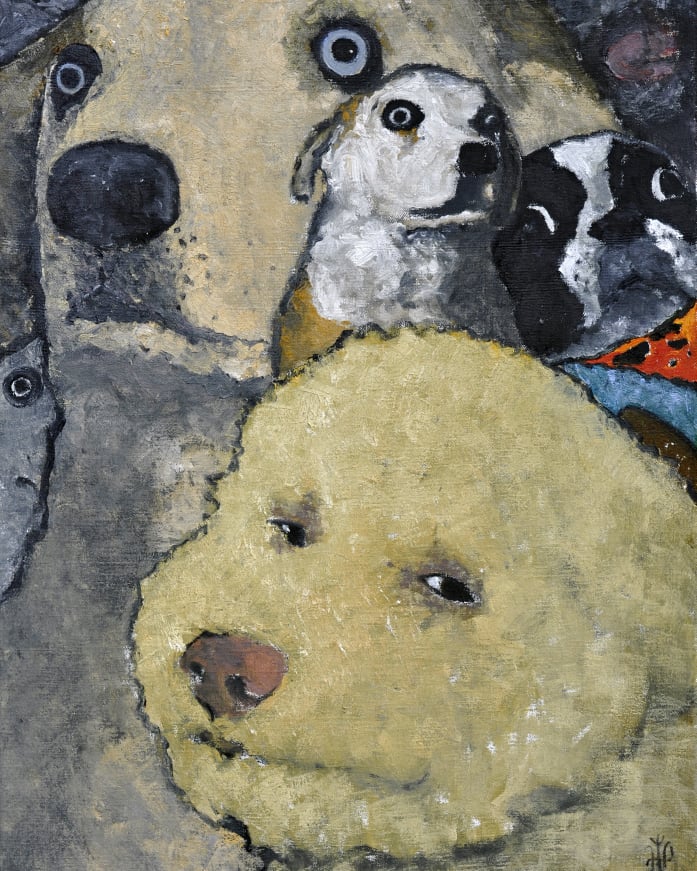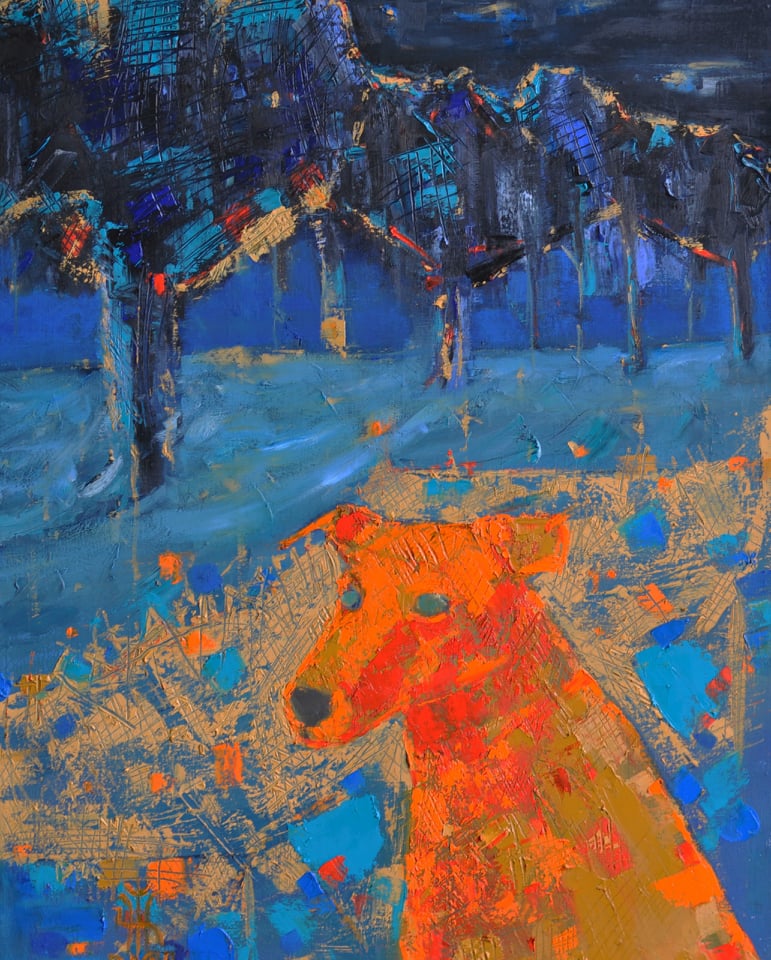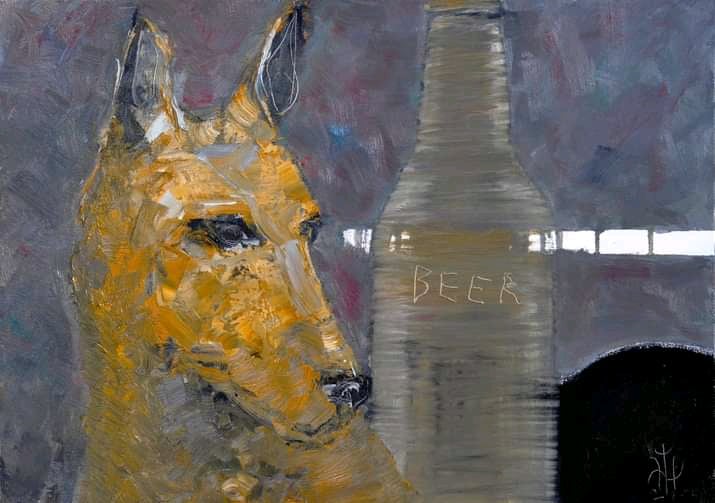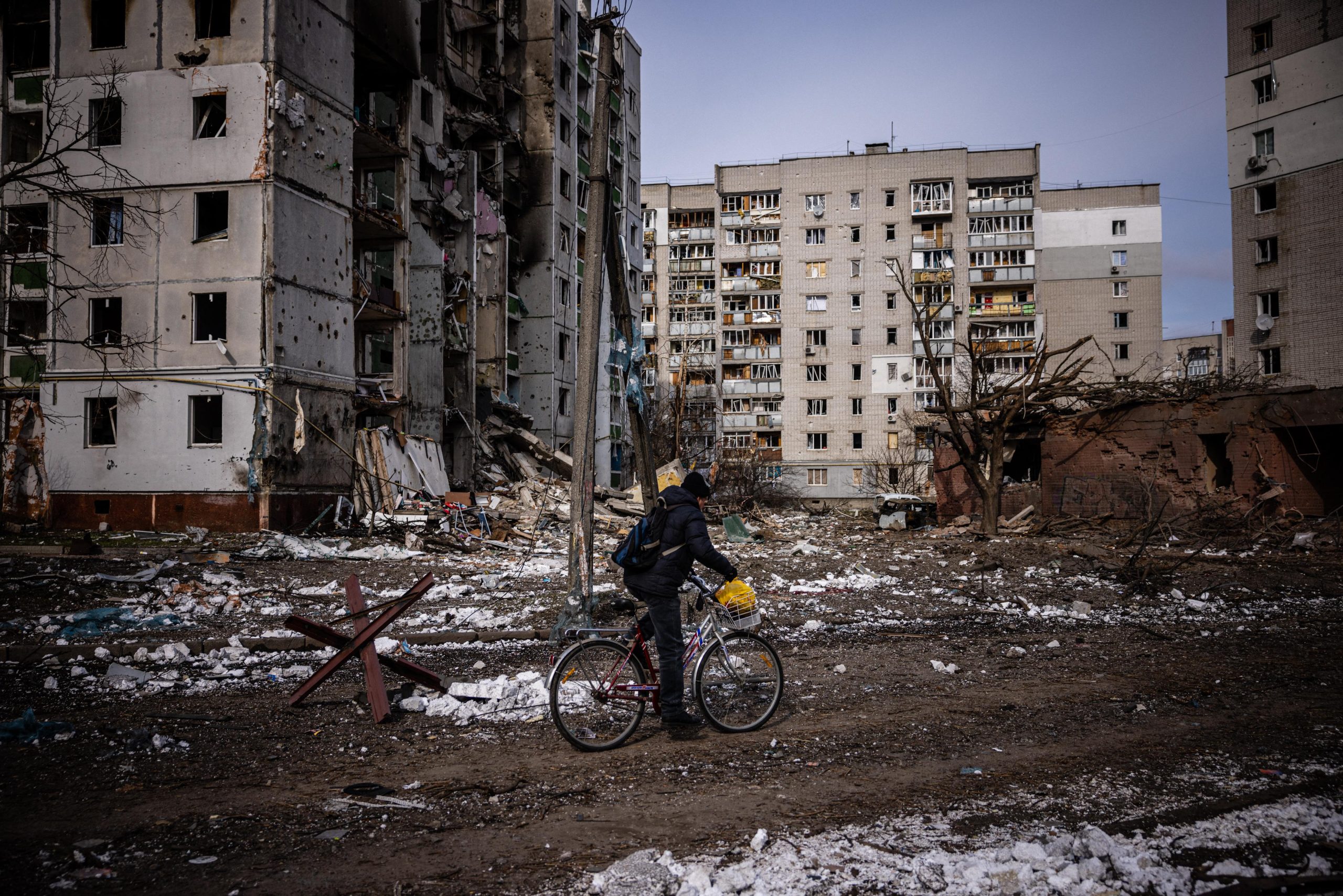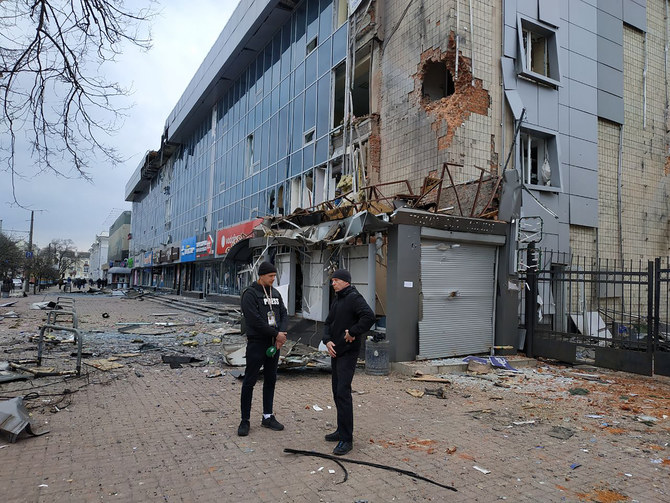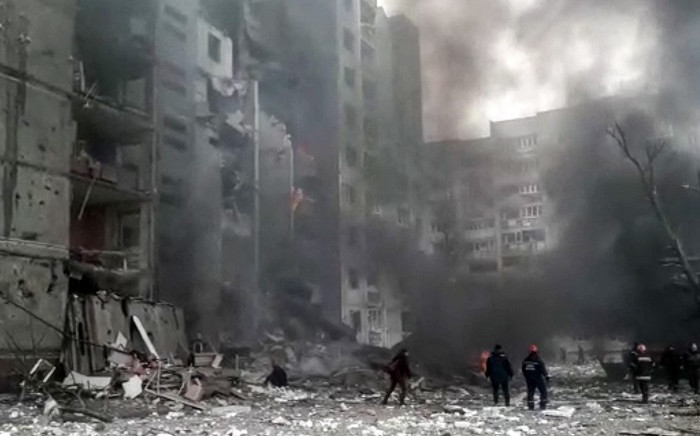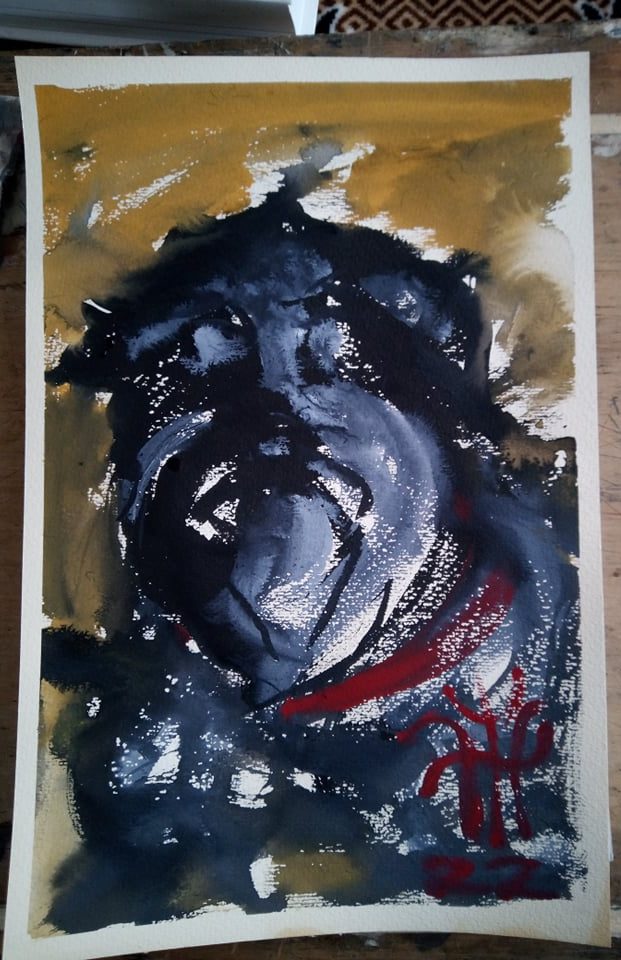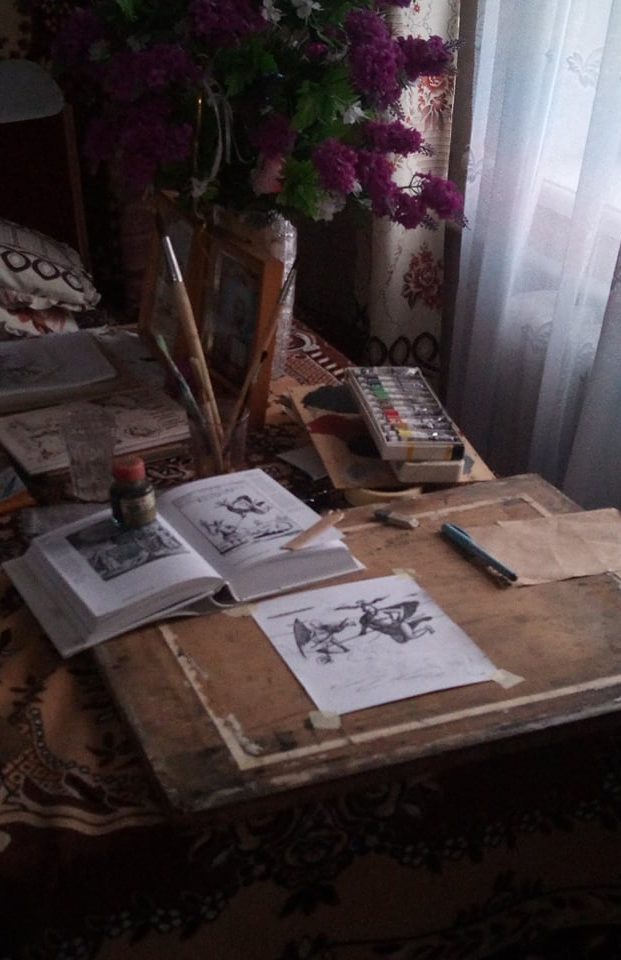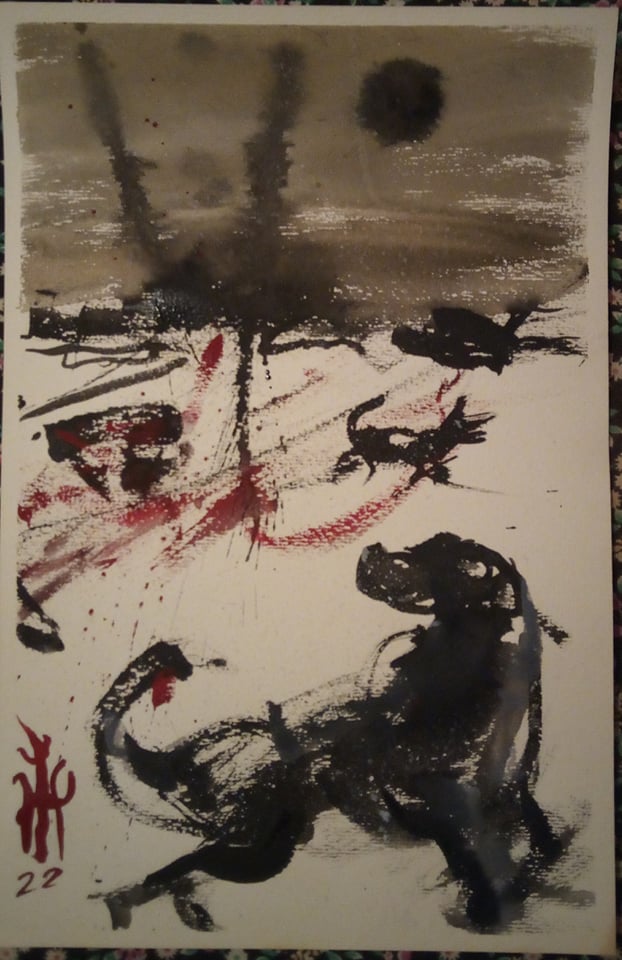By Steen Andersen
In 2021 I spent four months in Ukraine. The country and its people made a deep impression on me. Now my love for Ukraine is under attack. This free and wonderful country is being crushed. What can I do to help them? Maybe I can’t save human lives or stop the war, but I can try to convey what I’m thinking and what my Ukrainian friend Swiatoslaw in Chernihiv tells about his everyday life in a city under siege.
***
Day 1 – The Russian invasion
Morning coffee. Bread, butter, and jam. Coziness. I’m sitting in my mother’s living room watching the news of the Russian invasion of Ukraine. The Russian forces crossed the border in the early morning. I left Ukraine in September last year. The culmination of four months of research into a book project called From UA With Love was to be a tribute to Ukraine, its inhabitants, culture, and nature. But a shadow of death and destruction is now spreading through the country. Here at the breakfast table in front of the TV, it also reaches into my mother’s living room.
Uncomfortably empty inside, I put the coffee cup down on the table. The shadow of war has drained me of courage and energy. I can barely feel myself. My hands shake as I point at the map of the capital Kyiv which has appeared on the TV screen.
“I lived near the botanical garden for the first few weeks. With its many parks, trees, small streets, architecture, and city life, Kyiv reminds me of Berlin,” I say resignedly to my mother and continue to point out places I know in the capital.
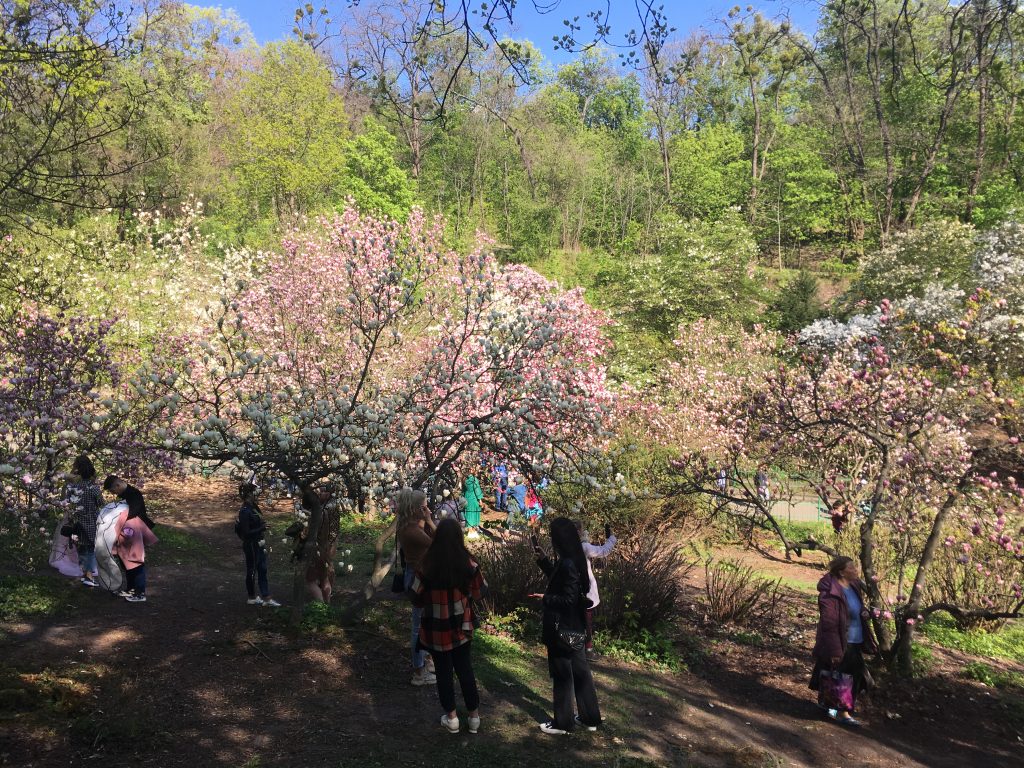
The bird’s-eye view is broken and we land in the streets of Kyiv. The pictures of people rushing past to stock up on food and other provisions. Are there any of them that I know? There is a sense of powerlessness that I share with them. My love for Ukraine is under attack. This free and wonderful country is being crushed – collapsed buildings, air sirens, anxiety, wounded and dead soldiers, and civilians. Russian fighters dropping bombs and missiles on cities. Russian soldiers on the rise. Russian tanks, rocket batteries, and military vehicles are driving through the winter landscape shaking the foundation of Ukraine. The waves of terror and anxiety can be felt throughout the world. I just feel like hiding and waiting for it all to be over.
***
Day 2-3 – My Friend From Chernihiv
In the following days, I’m in contact with a Ukrainian friend who is living with his mother and grandmother in the city of Chernihiv which is located 120 km north of Kyiv. A city with around 280,000 inhabitants close to the border with Russia and Belarus, and which the Russian forces must pass on their way to the capital.
My friend Swiatoslaw is an artist whom I visited last September. Here he showed me the city’s museums, galleries, studios, bars, and restaurants. Introduced me to artists and friends. Showed me his art. Discussed art. Soviet art. Ukrainian art of today. Told about the city. The art scene in Ukraine and the political situation. Hospitable and intelligent with a nuanced world perspective, a proud Ukrainian with wonderful dark humor who enjoys life.
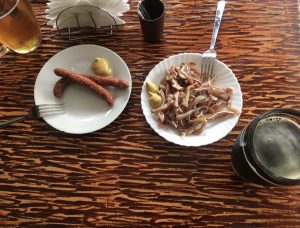
He then considered the threat of a Russian invasion as just another play for the gallery because Putin needed to show his muscles.
“This is how Putin’s rhetoric and maneuver have been for years. We have got used to it. Even though it is starting to get tiring,” he explained with a serious smile while we had a morning cognac at one of the city’s local cafes.
But what no one thought possible has now happened. Putin, the master of megalomania, has replaced his empty rhetoric with concrete acts of war. Fortunately, Swiatoslaw is safe – so far. He tells that in the first two days after the invasion, Chernihiv managed to withstand the Russian forces.
“They have tried several times to penetrate the city and have bombed the surrounding villages. But they have been sent back to hell every time. It’s like waves, one attack after another, with small breaks in between. People organize themselves in groups. Patrolling the local neighborhoods. There are a lot of volunteers, so I think we are doing well so far.”
This was Friday and Saturday.
***
Day 4 – The Old Cinema
I get the following message from Swiatoslaw:
“Do you remember the place where we went to the exhibition and concert before the restaurant? Well, it’s been blown away. Russki ‘Iskander’ from Belarus.”
The city’s former cinema has been hit by a missile. An architecturally beautiful building built in the 1930s – a monument in Chernihiv. During World War II, the building was almost destroyed, but the facade survived. After the war, the cinema was rebuilt. Last year, it was renovated and transformed into a public platform for cultural and social initiatives.
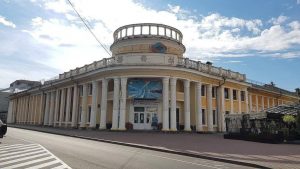
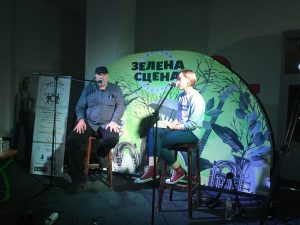
“On February 27, this monument was bombed for the second time. It was done by the Nazis of the 21st century – the Russian invading forces, ” stated the Chernihiv Regional State Administration.
Video: Ruins of bombed cinema
***
Day 5 – No forgiveness
When I talk to Swiatoslaw today, I ask if the Russian army in addition to the old cinema has attacked other civilian targets in the city, since I have read in the media that an apartment building was hit and there were wounded. There have also been reports that Russian troops have dropped cluster bombs – banned by an international treaty against civilians – in the town of Kyyinka near Chernihiv.
“There are many bombed-out buildings in Chernihiv. The Russians have lost almost their entire avant-garde, so they have become desperate and try to bomb us into the ground, killing as many civilians as possible. They don’t care about human life. Even their soldiers they use as cannon fodder. Until now, our defense is holding and we are strengthening it. Everyone in town is working together to get the ‘Russkies’ down by the neck. There is no forgiveness for them at this time.”
I ask Swiatoslaw where he is staying, but for good reason, he will not say so. Although he has not served his military service due to medical conditions, he, like many other Ukrainians, will not hold back from taking up arms and fighting to the last for the country they love.
***
Day 7 – Partisan Glory
Write early in the morning to Swiatoslaw. I didn’t hear from him yesterday. After a minute, he calls me. He sounds breathless and speaks faster than usual. The connection is bad and he falls out several times. But he’s fine, considering the situation.
“The Russian forces continue to attack and try to advance, but in vain. We have still a good food supply. New weapons have just arrived. The city will fight to the last man. Standing together for as long as it takes.”
How can it be that Chernihiv has still not fallen? I ask.
“The Chernihiv Oblast region is being called the ‘Partisan Glory’. The Russians should know this and learn from history – instead of believing in Putin’s propaganda.”
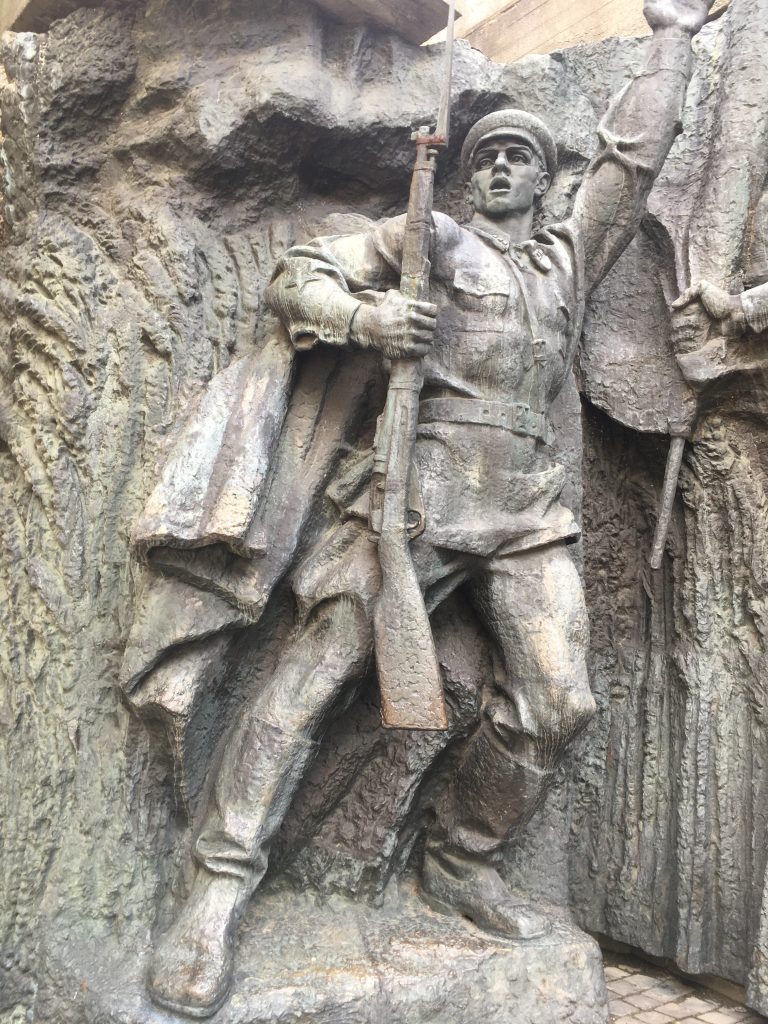
In the last few days, Swiatoslaw has been involved in coordinating the city’s food supply as well as the civil war effort in cooperation with the Ukrainian army.
“Our army is far from as large as the Russians, but the Russian army is unprepared, and has poor morale and logistics. When many Russian soldiers came to Ukraine and experienced the situation, they began to surrender, leaving their vehicles or giving them to the locals for food since they have no supplies.”
The situation for many Russian soldiers is so stressed that they have started taking the civilians’ mobile phones as they don’t even have road maps to navigate. Therefore people are destroying the street names so that the Russian soldiers won’t be able to find their way and write ‘Fuck Russia’ on the signs.
What is his hope for the future? I ask.
“The Russian soldiers must stay here forever – as soil,” Swiatoslaw says calmly. “I hope sunflowers will grow from the soil.”
***
Day 8 – Thirty-three Killed
Over a week has passed since Russia began its invasion of Ukraine. Chernihiv is still standing. But the city is under heavy bombardment and surrounded by Russian troops.
Around 12:25 Danish time, Swiatoslaw writes that Russian forces have just hit a residential area, including a school and an apartment building opposite where he lives. He sends me some photos and a video. You can see black smoke pouring out of the buildings. Rubble, broken glass, metal, and things from the badly damaged apartments are scattered across the street. People are running around desperately. Ambulances arrive. Rescuers carry corpses out on stretchers. First twenty-two people are reported killed. Later it rises to thirty-three killed as well as eighteen wounded. Swiatoslaw says he knows several people who lived in the building. But he doesn’t yet know if they are among the victims.
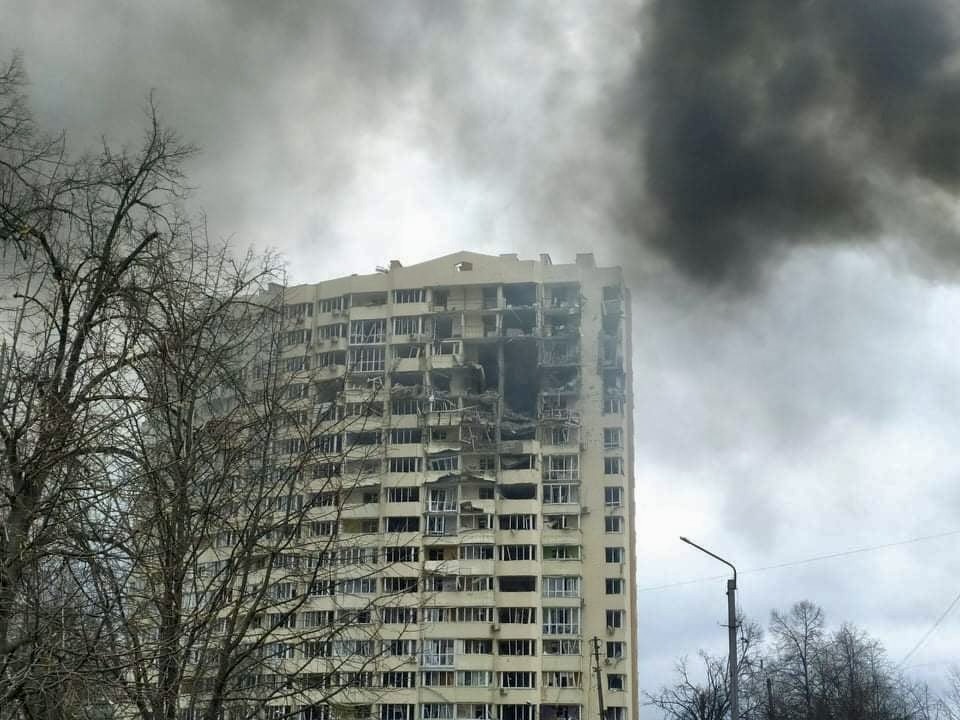
“I should have been scared, but I’m just apathetic. Don’t quite know what to do with myself.”
The Russian forces’ attack on the city is intensifying. The same day an oil depot is set on fire after being shelled by the Russians. There are also reports that Russian fighters have shelled two schools and some houses with civilians. The situation is becoming critical. The inhabitants are preparing for a long and bloody city war. Surrendering is not an option.
“We have no other choice. We are fighting for our country and homes, ”says Swiatoslaw.
Video: After the bombing of an apartment building in Chernihiv
***
Day 9 – Everyday Life Continues
The day after the attack on the apartment building and school. Swiatoslaw is feeling better today, even though he has lost contact with a few friends and has no opportunity to verify if they are still alive. However, everyday life must continue. Trucks, cars, and people are driving on the streets of Chernihiv. People go to work. Many shops and public services are open.
Swiatoslaw’s day proceeds as follows:
Breakfast.
Walking with dog.
Checking mines and any signs of Russkies.
Shelter.
Bombs.
Walking back through ruins.
Night.
Bomb alerts with pauses of 30 minutes.
***
Day 10 – For His Safety
The winter in Chernihiv can be tough especially when the cold winds are blowing in from Russia. Today the temperature is some degree below zero. Unfortunately, there is no longer hot water or heating in Swiatoslaw’s apartment, but electricity and internet are working, and they have a basic food supply. However, since the beginning of the war, the Ukrainian government has banned all sales of alcohol.
“Probably, so people won’t sit alone inside their apartments getting more depressed by drinking, and also, it’s not good for morale. You could imagine soldiers with guns running around drunk. We let the Russians about that,“ he says with a laugh, and adds seriously: “I would also rather save my money if I suddenly needed to flee the city.”
Swiatoslaw lives with his mother and grandmother, but they have told him that he should just leave the city by himself if it becomes necessary.
“It will of course be a tough decision, but I understand them. They are too old to go out on such a long and dangerous journey. I will have better chances to survive without them.”
I tell him, that if he needs money, I can send him some. Still, the banking system in Ukraine is working and he can use his credit cards.
“The past few days I have thought of asking my friends abroad to send me some money to buy a weapon so I can defend myself. However, when I visit some of the shops to look at a rifle or a pistol, they were all sold out. So that’s not an option.”
Many Ukrainians participated in weapon courses when the conflict with Russia began in 2014 – first with the Russian annexation of Crimea and then the war in the Donbas region. So even though Swiatoslaw hasn’t had any military service he has some knowledge of using a weapon.
“But if it’s a clever thing to let me handle a weapon is another thing. It’s some years ago, so maybe I’ll end up shooting myself in the foot.”
Over the phone, I can hear a siren in the background. Swiatoslaw says, that there is a Russian air raid, so he has to stop talking and go to safety.
***
Day 12 – Where To Find Shelter
We talk about where it is most safe to be under an air strike when living in an apartment.
“Well, that’s a paradox question,” Swiatoslaw says thoughtfully. “As I see it, you can either be in the basement and if a missile hit the building in the right way you could end up being buried alive underground, having a long and painful death, suffocating, dying of your wounds, hunger or thirst … or you could be up in the apartment and have a quick death when the missile hit you.”
He then asks me, if I remember the apartment building and school that was attacked earlier in the week where many people died or got wounded.
“The Ukrainian army has shot down one of the bastards that bombed the buildings,” Swiatoslaw tells in a fiery mood. “The story goes that the pilot jumped out with his parachute and went down outside the city on some field. Unfortunately, he landed near a farmer and killed him. Afterward, he was captured and interrogated by the Ukrainian army. He gave them some important information that can be used in further trials on the Russian assault on civilians, telling them that they have orders to bomb civilian targets.”
There is also a rumor that Russian soldiers near Kyiv have begun fighting each other due to a lack of supplies. However, the question is if it’s fake news or real.
I ask him, where he gets his news from. If the Ukrainian newspapers and electronic media still function? With all the rumors and fake news, it must be difficult to get a clear picture of what is happening, even in the city he lives.
“Before the war, I use many different sources to get information. Now I listen mostly to friends and the news broadcast by the Ukrainian army. I believe they are the most trustworthy.”
***
Day 13 – Rescue Mission Completed
For the last couple of days, Swiatoslaw has tried to find a car so that he could rescue the paintings of Chernihiv’s modern artists that have been exhibited in the Library Art Center which he has been running for some years. Earlier he tried to contact a private association, but they didn’t know where their car was at the moment.
“Many of my friends said that it’s not the time. Most people don’t give a shit about art. But I said, let’s try. And today I was lucky.”
To his surprise around eight people called and said that they had a car he could use for the transport. So he had a meeting with an old guy from the military, and together with some friends he picked up the paintings and drove them to a bunker.
Paintings by Oxana Cornienko (left) and Olena Sachenko (right).
“I must admit, that when we came to the gate of the art center and saw that soldiers were guarding the place, I thought, we screed up. They won’t give us any of the paintings. But I explained our situation and they said, that’s fine, and let us in. Looking at it now, it was a dangerous trip driving through the city just to save some art. However, it’s a good feeling to know that the work of local artists has been saved for the future.”
Unfortunately, others have not been so lucky. When he contacted the local art museum of Chernihiv he was told by the employees that a missile the day before hit the entrance. The shock wave from the explosion destroyed most of their collection of classical Ukraine paintings.
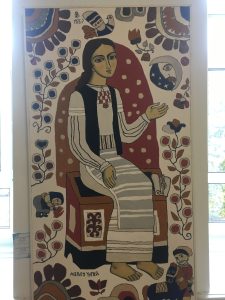
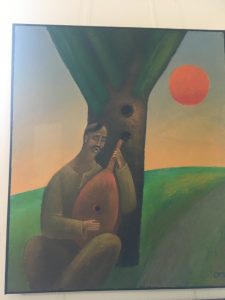
Paintings by Ivan Valentine Zadorozhnyi (left) and Olexiy Potapenko (right).
He has also tried to get in contact with one of his famous colleague artists, but he has gone underground probably because he has made many anti-Putin works and therefore is laying low.
***
Day 14 – Culture Unite
Other artists have heard about Swiatoslaw’s rescue of the paintings from the Library Art Center. So today some of them have contacted him to hear if he can help them transport their art to the secured bunker that is located in a secret place in Chernihiv.
“It is important to help preserve the local cultural inheritance for the future,” says Swiatoslaw with his typical rational and calm voice. “I have also thought about how it would be possible to help artists flee the city. Artists must survive so that they after the war can continue their work since their art is part of something larger. Chernihiv artists, like all other artists around Ukraine, are a part of the European cultural inheritance. And we need them to describe and reflect about what is happening in Ukraine both now and after the war.”
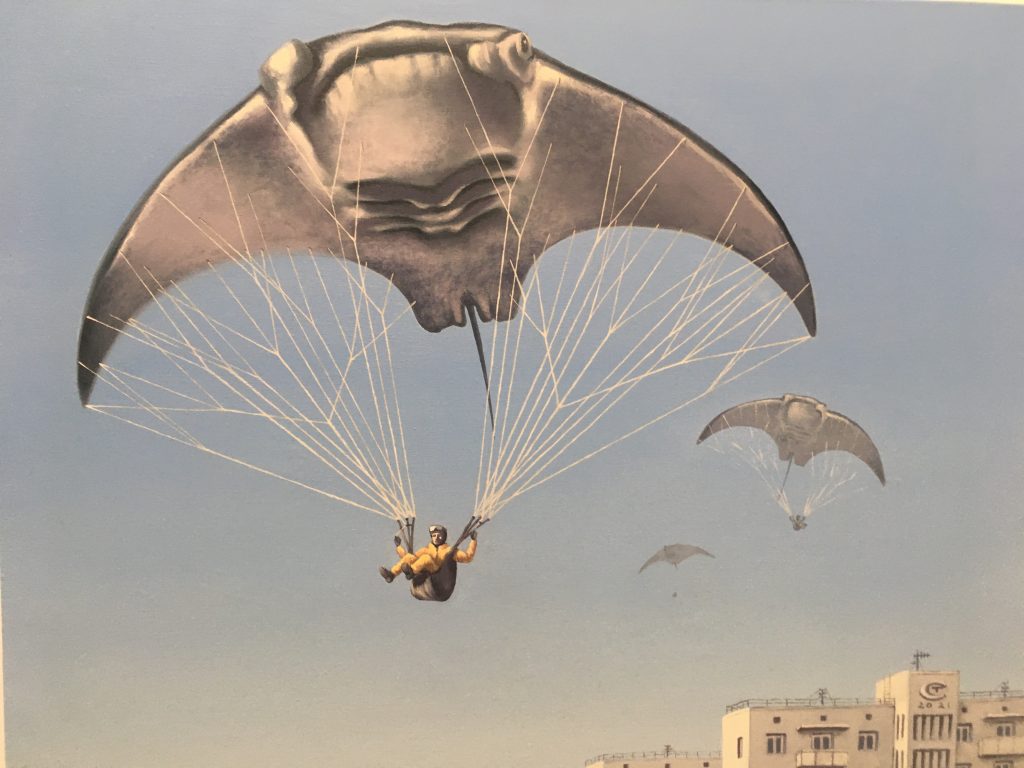
Painting by Serhiy Tonkanov.
However, at the moment most artists keep to their houses and studios, even if it will mean that they get wounded or die. Their main fear is that if they leave now, they would never be able to return to their homes or studios and they will lose many of their artworks.
“Culture is what makes us human, both as an individual and as a collective. We are cultural beings, and culture connects us to our fellow beings, but at the same time, it also tells how we as individuals are unique and how different groups of people are different from other groups of people. It tells us how we live and how we perceive the world, tells us about our dreams, hopes, pains, and struggles.”
Swiatoslaw believes, that after the war Ukraine’s culture and art will be even more powerful and cohesive due to the country’s common struggle against the Russian invaders. Since the conflict with Russia began in 2014 there has been an increasing rejection of everything that is Russian. This will now become absolute.
“Putin is obsessed with the idea of a united Great Russia, bound together by a common culture and history, and he wants Ukraine to be part of his mad illusion. What he first now has begun to realize is that with his invasion of Ukraine, he has done just the opposite – he has helped united Ukraine from top to bottom.”
Day 15 – The Power Grid Is Down
Get the following message from Swiatoslaw:
“Problems with electricity. So if I don’t appear online for some time I probably just can’t recharge my phone. Or I’m dead.”
Although Ukrainian forces are still fighting to keep the roads open, Russian forces have surrounded Chernihiv, trapping its 280.000 residents from all sides. So the situation is becoming critical. The city is without gas for cooking and heating after Russian shelling destroyed the pipelines. Many neighborhoods also have no access to clean water, and the city has been disconnected from the national power grid.
When Swiatoslaw went to a shop that sells electronic equipment to buy a power bank so he can recharge his phone there wasn’t any to get.
“The owner of the shop told me that the police came earlier today and took all power banks as well as all phones. Without paying him. Hopefully, they did it for practical use and not to sell them for their own gain at the black market.”
Fortunately, Swiatoslaw knows a friend whose apartment still has electricity, but the question is for how long. He first has to find a way to go from the city center where he lives and out to his friend in the suburbs. With the intensified bombings by the Russians, it can be a dangerous trip.
***
Day 16 – Library Reduced To Rubble
Swiatoslaw’s phone is still working. He contact me today around noon. More civilian buildings in Chernihiv have been shelled overnight by the Russians.
“Library gone. Building of 19th century. How many of the books in their collection there are to save, I don’t know.”
In the photos damaged books and bookshelves are seen from broken windows in a heavily damaged library. Hundreds of books are scattered outside across the ground.
Swiatoslaw is shaken and sent me the song ‘Summer Is Gone’ by Death In June & Boyd Rice – it gives a feeling of one’s emotional state of mind when living in a city under siege.
Later I read that also the soccer stadium in Chernihiv was hit by the airstrike overnight Friday. The Ukrainian football association released the following statement:
“For the third time, the Muscovite occupiers fired on the most dangerous military infrastructure in the city – the stadium of our home football team.”
***
Day 17 – Hotel Ukraine
Russian forces continue to launch air and missile strikes on Chernihiv. Civilians are dying, people are being injured. They target civilian infrastructure, there has no military value.
“Hotel Ukraine is no more,” write Swiatoslaw.
This message has a special meaning for me. It was the hotel I stayed at when I visited Chernihiv and Swiatoslaw at the end of September last year. A nice comfortable hotel. Good service and hospitality. Located in the city center. Outside there were shops, cafes, and a park where I would sit reading or waiting for Swiatoslaw to pick me up in the morning. Strange feeling when a place where you have been suddenly overnight is destroyed. Writing this, I suddenly get a strong urge to be in Chernihiv and do something to help. If it would be to sweep glass from broken windows off the streets, cook food for those who have no home anymore, or carry wounded to the hospital – it doesn’t matter what, I just want to do something. Help make the injustice more bearable.
***
Day 18 – The City’s Destiny
Throughout the day Swiatoslaw has been looking for a car to rescue fellow artists. But to no avail.
“People are stealing cars to escape. But I’ll legally find a car. However, the infamous Ukrainian corruption has reached new heights. So let’s see what is possible with so many fuckers around.”
Swiatoslaw tells that going around in Chernihiv is a strange feeling since there is almost no one around in the streets. The silence can be overwhelming and then suddenly in the background shooting and bombing. But he has gotten so used to it that he simply just continues to do what he had planned to do.
“It seems the city will face Charkiv’s destiny. The city is fucked up. Bombing everywhere. Blockades. Dogs roam the streets looking for food or for their master that left them when they fled the city. The Russians will not stop before they bombed every building down to the ground. But just let them. We will continue to fight them from the piles of rubble.”
Day 21-24 – The Escape
I haven’t had contact with Swiatoslaw for some days. To be honest, I feel depressed having to deal with the situation in Ukraine through the news and social media, not to mention my problems in Denmark finding a way to earn my living – I have to do some money work, so pull the plug to the news feed and puts the writings about both Swiatoslaw and my poetry book tribute to Ukraine From UA With Love on a hold. We both have our everyday lives and realities to deal with.
Then on March 18th, I get the following message from Swiatoslaw:
“Hi, trying to escape. Took my mother and dog. On the road.”
Leaving the city of Chernihiv and traveling through the rural war-torn areas of North-eastern Ukraine also means a bad mobile phone connection. Over the following days, we try to call each other, but either it is not possible to get through, or else I’m busy with my new job teaching children in public school. While I’m attending a gathering on March 21st celebrating the Persian New Year at some friends’ place Swiatoslaw finally gets through. I find a fairly quiet place inside the house and he begins to tell me about his escape from Chernihiv and the next day’s journey towards his destination somewhere in central Ukraine. It’s a strange surreal feeling, being at a party with kids running around joyfully playing and adults eating, drinking, cheering, and talking in the background while I sit on the stairs to the attic trying to hear Swiatoslaw’s story over a bad phone connection from Ukraine. But the most important thing is that he finally got through and is doing okay considering the situation and that he tells what going on in his life. As he put it himself:
“Maybe my story won’t be heard in the whole world, but I believe, it’s a good thing to talk about it with someone as we do. It gives me a little peace of mind.”
However, every five or ten minutes he falls out and we end up yelling back and forth: “Can you hear me … you are falling out … can you hear me now …” and have to re-dial and again wait for the connection to get through.
This is what happened the days when Swiatoslaw, his mother, and his dog were fleeing away from the North-eastern war zone towards central Ukraine:
“You could call it a spontaneous escape,” Swiatoslaw begins. “I had already talked with a friend who is a member of the local Hara Krishna church in case we had to flee. He needed a place to stay, so the deal was that he would look after my grandmother and live in my apartment where there are enough food supplies to survive for some months.”
His grandmother wanted to be left behind so she didn’t slow them down. At first, Swiatoslaw tried to get her with them, but she couldn’t go down the stairs from the ninth floor. There was no electricity in the building so the elevator didn’t function. They tried to get aid from the authorities, but when the volunteers heard it was an old woman, Swiatoslaw was told that all resources were allocated to help younger women and children. Especially if you were a man that needed help, it was a sure no-go.
“I and some other painter tried to help evacuate elderly painters from Chernihiv. When the situation became dire, we took contact with some volunteers from the municipality. After a couple of days, we were told that they would begin to evacuate people. However, when they hear that the painters were male, they couldn’t help. We tried to convince them but to no avail.”
A day or two after the discussion with the volunteers he decided to go himself.
“The bombing was going on night and day. It was unbearable. Even though none of us thought it was possible to escape from the city, we had to try. So I packed the most important things in a couple of bags and prepared to leave. It was touching: me, my mother, and my dog saying goodbye to my grandmother and Hara Krishna’s friend. Then we walked down the nine floors.”
When they reached the front door of the apartment building, they saw a small car packed with things. It was a neighbor packing her car. The woman who was responsible for the building. Swiatoslaw asked her if she could take them through the city since it was dangerous to go on foot because of the constant bombings. She, however, at first avoided the question, but after some intense persuasion, she hardly agreed to take them through the city, not any further, since she was going to another part of Ukraine. So after an hour of driving, they went out of the car somewhere on the outskirts of Chernihiv
“I had a similar experience three days earlier, however with a negative outcome, “ Swiatoslaw explains angrily. “Another neighbor was planning to leave the city. He was a nice guy, and I helped him change the tiers on his car. He told me that he probably could take us with him in his car. However, the next day he said, that he probably not had enough room in the car since he had many things he needed to take with him. If they maybe could find another option. Then the day after, my mother heard some strange noises out in the hallway around 4-5 AM. A little later a car engine started and my neighbor just left, even without saying goodbye to us.”
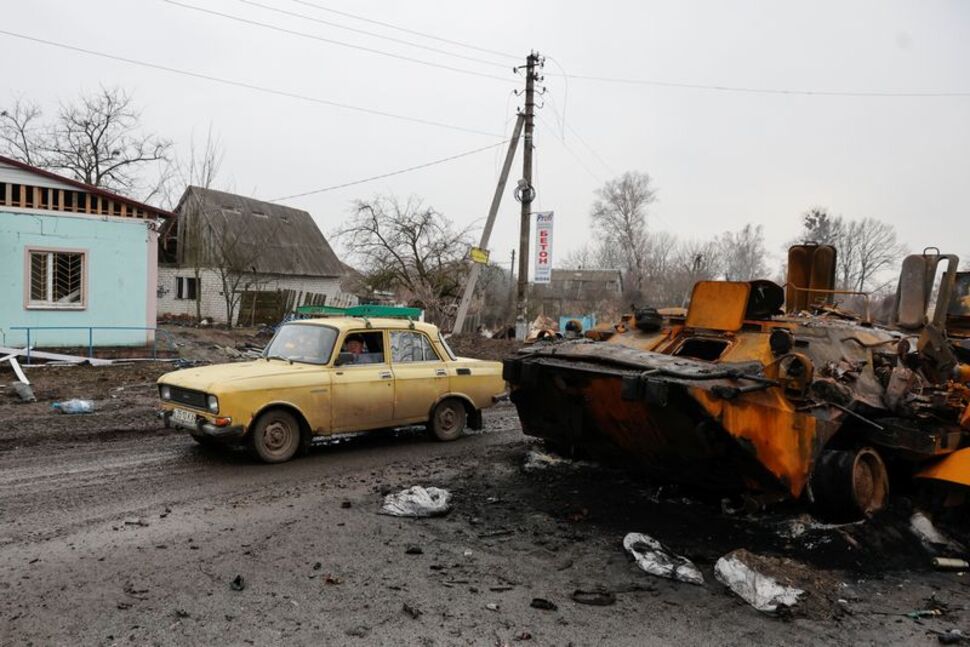
They tried to find another car, but people didn’t stop even though there weren’t any other passengers or their cars were just filled with things. After some hours, Swiatoslaw decided they should continue on foot. There was only one exit out of the city. The bridge over the Desna River connects the city with the highway leading to Kyiv. A walk of approximately 5-6 kilometers. Luckily the weather was sunny. When I asked if there was snowing or how cold it was, Swiatoslaw answered resigned:
“I didn’t register or feel a thing. I was so pissed off that nobody wanted to help us. They just were thinking to save their own ass and all their stupid things.”
When they arrived at the bridge there was a huge line of cars trying to escape the city.
“I told my mother that we needed to take a break, and began to go from car to car asking for a lift, said we would even pay them. But again, no one wanted to help us. As a last hopeless resort, I asked the soldiers at the military checkpoint at the bridge. They said: ‘Wait here, we will help you find a car.’”
Soon the soldiers spotted a minibus with only the woman driver inside and made it stop.
“What the fuck, where are you going without any people in the car?” the soldiers asked. “Show some respect for those fleeing the city.”
The soldiers forced the driver to take Swiatoslaw, his mother, and his dog with her.
“My dog was barking constantly until we came into the mini-bus. Then we went on a surreal trip driving through the war-torn landscape towards central Ukraine where we had contact with some relatives.”
The whole situation seems somewhat ironic. The woman driver turned out to be a relative of one of the painters he in vain had tried to help escape the city. Also, she was teaching music at one of the schools of art so they had many common acquaintances.
“Strange to find out this connection. However, if it hasn’t been for that woman we would have frozen to death. She was a nice woman, and like most people, she was scared and just wanted to get away. But I thanked her.”
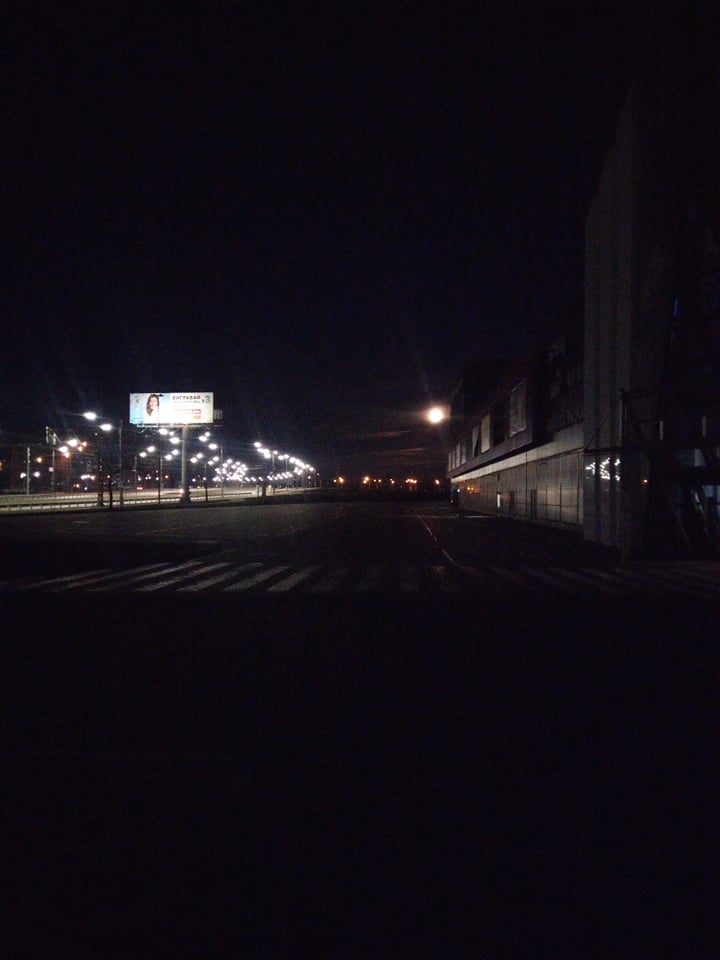
By the evening of the first day, they reached the outskirts of Kyiv. There was a prohibition for civil cars to drive after dark so they had to stay in the parking lot at the railway station overnight together with many others that only wanted to move further on to safety.
“It was a terrible night. The minibus had no heating so we woke up every hour and left the car to make physical exercises to keep warm. At some point, my legs and feet were so cold that I thought I’ll never be able to feel them again.”
In the morning people started waking up. Swiatoslaw tried to find a toilet, but there was no one open. Instead, he found a coffee machine that was working and drank three cups of coffee.
“We now had to make a serious decision: either we had to take the main road from Kyiv to Lvid in the Western part of Ukraine that was under constant bombing by the Russians or the main road to Odesa which would take us further away from our destination. It was too difficult to continue on the smaller road with the possibility of Russian soldiers lurking around.”
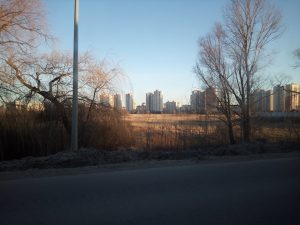
They were in contact with their relatives living in the area where they were heading and the relatives told Swiatoslaw that they would try to find a car that could pick them up somewhere on the route. The minibus was in a group of 3-4 cars because it was too dangerous to drive alone. One of the other drivers said that he knew the way, but as it turned out, he didn’t. Therefore the deal became that the small caravan of cars should drop them off at a small city in the western part of the Kyiv region where they then would have to find another car. However, they were dropped off at the wrong place where they only could find a taxi. The taxi driver first agreed to take them the whole way, but then he called his wife to ask for her permission, and unfortunately, she only wanted him to drive them half the way. In the meantime, their relatives had found a guy who could pick them up where the taxi driver dropped them off. Swiatoslaw had, however, heard a rumor that Ukrainian soldiers were pulling men out of the cars to mobilize them for the army. That could mean that he would be separated from his mother who then had to make the rest of the journey alone.
“It was just fake news. When we arrived at the different military check-point I showed my ID card but never encountered any problems. First, when we arrived at the village of our relatives, the militarily asked for information about where we were going and why. In my papers I wasn’t officially living in Chernihiv, but in Kyiv where I have another flat. So the soldiers said: Hey, we got some guy from the capital, just go! The trip from Chernihiv to the village took us two whole days.”
***
Day 26-27 – The Homecoming
Finally, they arrived at the village of their relatives. It was near where his grandmother and grandfather had grown up. They found out that some houses already had been given to other relatives from Kyiv. After a few days, they moved to a house in a nearby village – an old house built by his grandfather. Here there was heating, water, and electricity, and he could even buy beer in the local grocery shop.
“It felt in a strange way like a homecoming,” Swiatoslaw tells over the phone which as usual has a bad connection. “I have been in the village almost every summer, painting and relaxing, and therefore know the area and many of the people very well.”
His mother asked if he at some point wanted to return to Chernihiv.
“Never, I told her. After experiencing the destruction of my art center and studio I don’t have any motivation to go and stay in Chernihiv. Maybe I’ll move to Kyiv or when the borders are open again I might want to travel around the world – if what you create is destroyed, why stay?”
***
Day 28 – Safe Have
I got this happy photo of Swiatoslaw’s dog Proclus – named after the Greek philosopher Proclus Lycius. It made me happy to see some joy after so many days of death, destruction, and uncertainty since the beginning of the war. Every day seemed like a struggle for survival. For now, Swiatoslaw, his mother, and his dog had, at last, found a haven. Even though the frontline still seemed dangerously close to the village.
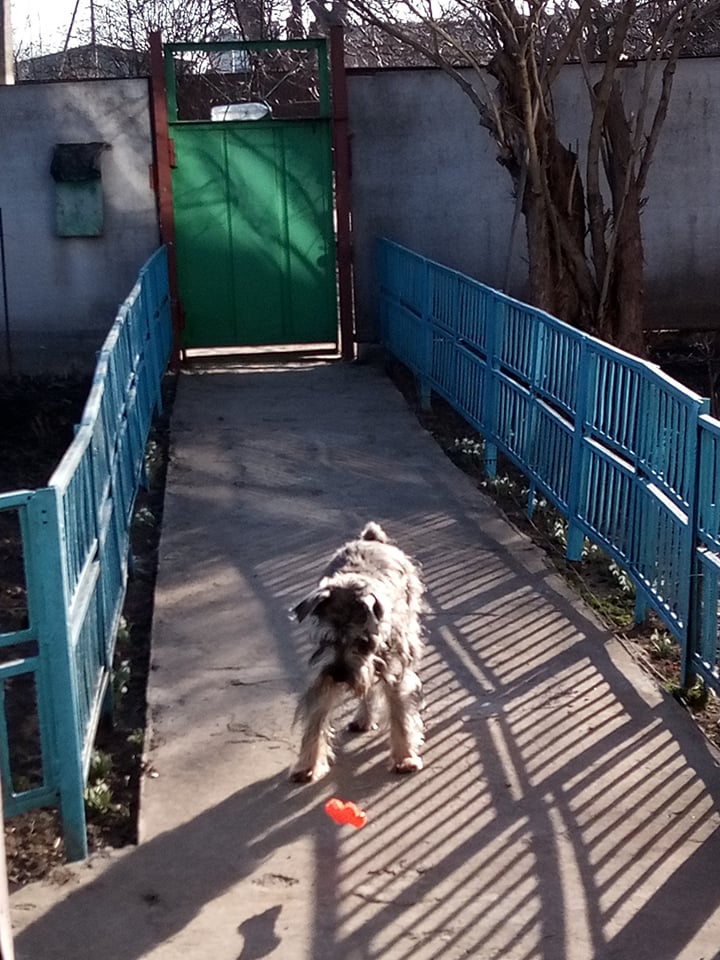
***
Day 29 – Bad News From Chernihiv
In the news today I hear that the bridge over the Desna River which connected Chernihiv with the road to Kyiv has been bombed and destroyed by the Russian forces trapping about 150.000 people in the city with little hope of leaving or getting aid. The authorities have imposed drinking water rationing, and the city continues to be without electricity, and gas for heating and cooking.
Officials said they were running out of drinking water, in a forewarning of a major humanitarian disaster to match that of the heavily destroyed port of Mariupol, in the south-east of the country, from where 100,000 people are struggling to flee. Water will from today be given in the amount of 10 liters per person.
The city’s major Vladyslav Atroshenko told the Ukrainian news website Censor.net that there were now 40 funerals a day in Chernihiv, up from eight before the war, as a result of Russia’s shelling. And an adviser to the head of the Ukrainian president’s office told Channel 24 that Russia had begun to “apply to the city the same tactics as in Mariupol”.
***
Day 34 – Something Must Be Done
Get a message from Swiatoslaw: “Hi, could you please repost my post?”
He is trying to sell some of his paintings that were left from an exhibition he had last year in Lithuania. Half of the money from the sale will be donated to artist friends from his now-destroyed art center. His hope is at least to help some people from the cultural environment in Ukraine.
His post goes as follows:
“To all of my friends from Western countries. I won’t be describing here all the ‘pleasures’ of life during wartime, it’s tough – but I’ll make it through. I’m continuing my work. Unfortunately, from where I am, nothing can be sent. But there are four of my artworks left in Lithuania after an exhibition organized by Živilė Vaičiukynienė. If you want to support me in these dire times, you can buy my artworks for reasonable prices half of which I will donate to humanitarian needs. I will be very grateful. If you are interested write or call me on messenger, or write under this post in the comments. All of my works are made in oil on canvas technic, and ready for shipping worldwide.”
***
Day 40 – The Destruction of Chernihiv
In the last few days, Swiatoslaw’s hometown Chernihiv has crawled further up on the international news feed ladder due to the Russian forces intensifying shelling of the city.
“At least 70% of Chernihiv has been destroyed by Russian forces, the city’s mayor said on Sunday. Vladyslav Atroshenko said the ‘consequences’ of the attacks were severe and mirrored those of other badly damaged cities in Ukraine such as Bucha and Mariupol. In Ukraine, Bucha is the latest, but Chernihiv, Mariupol, and Kharkiv came before, enduring similar treatment. Firstly, came a communications blackout and the cutting off of the essentials of electricity, gas, and water. What followed was the blanket bombing of civilian targets, alongside the false offer of humanitarian corridors that gave and then cruelly dashed hope. Infrastructure was demolished, hospitals, bomb shelters, and schools targeted.”
– theguardian.com
***
Day 41 – Village Life
Had today a long talk with Swiatoslaw. After two and a half weeks in the village of his relatives, he is still trying to find some everyday routines, but it’s very hard.
“I can’t even get a normal night’s sleep. Just to get a little sleep, I have to take some shots of vodka,” he says frustrated. I can hear in his voice that he is not in a good mood. “My mother takes it more lightly. She tries not to think about what has happened. However, I’m more this neurotic type of person that always thinks about all kinds of shit.”
His days go by helping relatives in their gardens and planting potatoes. copping wood, talking about what they should plant so they will have food in spring and the summer, and walking with his dog.
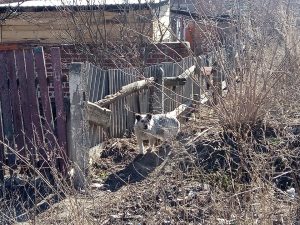
“I don’t have any friends there. But I don’t miss it either. There happened some kind of high-speed destruction of all my friendship connections in just a couple of weeks. The most difficult part was that I couldn’t help more people to get away from Chernihiv, and then ended up fleeing myself.”
He has tried to come in contact with some of his friends from Chernihiv.
“One of them is fine. Ironical it was the guy that had the first exhibition in my art center and the last one. He managed to escape with his mother to another rural area. I asked him if he wanted to participate in an art project. A Ukrainian girl living in Germany has asked me if some Ukrainian artists want to take part in an exhibition somewhere in Northern Europe. There will be a minimum wage for the artists and a percentage will go to humanitarian needs in Ukraine. But my friend has no means and material to either paint or draw. Also, he doesn’t want to do anything. Says he can’t concentrate because of what has happened due to the war.”
Swiatoslaw is planning to try some new painting techniques. He got a few art books and brunches with him. Also, his father has an old artist friend in one of the nearby villages.
“I called him and asked if he had some oil paint, brunches, and canvases. It turned out that he had old Soviet oil paint. There is also a shop that sells building materials where I can buy acrylic paint and cardboard, so I have inquired about different materials to be able to start working. The house my grandfather build is big, so I have a studio that was used by my father in his study years, but it is cold, so mostly I use the living room.”
His father is a famous Ukrainian painter living in Kyiv. Although the capital is under Russian siege and heavy bombardment he is still in the city.
“Since the beginning of the war, my father has been working non-stop. That’s what he always has done. Nothing can stop him from doing his art. Not even war.”
With Regards From Ukraine
***
Photos by: Steen Andersen, Swiatoslaw and facebook.com/oksaart12

